Engaging opioid overdose survivors in treatment
Clinical approaches for working with patients from wealthy families Treatment Center Director y

FALL 2017 • VOL. 15, NO. 4 • WWW.ADDICTIONPRO.COM 2017 QUALITY OF LIFE SURVEY RESULTS – PAGE 16
PLUS
PAIN RECOVERY PROGRAM
Ashley is a leader in pain recovery. Our comprehensive program helps reduce pain and treats co-occurring substance use disorder through evidence-based methods.
Ashley’s Pain Recovery Program offers:

• Individualized care



















• Innovative treatment
• Integrated approach
Everything for recovery because recovery is everything.
800.799.HOPE (4673) AshleyTreatment.org
Why Sierra Tucson?
It Literally Saved My Life.
“I would not be alive today if it weren’t for Sierra Tucson. I believe that every person who enters those front doors by that beautiful fountain is a blessed miracle, just like me.” -Andrew S., Scottsdale, AZ.
NO ONE KNOWS WHAT DESPERATION FEELS LIKE UNLESS YOU’VE BEEN THERE.
It renders you hopeless. Whether you are suffering from depression, anxiety, or PTSD, we are here to help you heal.
Call us to help your clients take the next step on their journey of change.

844-202-7373 | SierraTucson.com
We work with most insurance.
COVER STORY
Stimulants loom as the next drug crisis
BY GARY A. ENOS
BY PAUL HOKEMEYER, JD, PHD
BY MICHAEL WEINER, PHD, MCAP
BY GARY A. ENOS
EDITORIAL
Editor in Chief Julie Miller jmiller@iabhc.com
Editor Gary A. Enos genos@iabhc.com
Senior Editor Tom Valentino tvalentino@iabhc.com
Associate Editor, Reader Engagement Megan Combs mcombs@iabhc.com
SALES
All inquiries please contact
Director of the Institute for the Advancement of Behavioral Healthcare
Douglas J. Edwards (216) 373-1201 • dedwards@iabhc.com
Project Manager, Directories/Design Showcase
Erin Beirne (216) 373-1217 • ebeirne@iabhc.com
Traffic Manager Judi Zeng (212) 812-8976 • jzeng@vendomegrp.com
Please send IOs to: adtraffic@vendomegrp.com
All ad materials should be sent electronically to: https://vendome.sendmyad.com/
DESIGN
Creative Director Dave Villafañe

REPRINTS
Erin Beirne (216) 373-1217 • ebeirne@iabhc.com
SUBSCRIPTIONS
Call: 1-888-244-5310, email to: VendomeHM@emailpsa.com, or visit: www.iadvancebehavioralhealthcare.com/subscribe
REUSE PERMISSIONS
Copyright Clearance Center info@copyright.com Ph: 978-750-8400
Fax: 978-646-8600
ADMINISTRATION
Chief Executive Officer Mark Fried
Chief Marketing Officer Dan Melore
Vice President, Finance Bill Newberry
Director, Custom Media Jennifer Turney
Director, Circulation Rachel Beneventi
Addiction Professional (ISSN: Print 1542-8435, Online 2168-460X) is published 4 times per year by Vendome Group, LLC, 216 East 45th Street, 6th Floor, New York, NY 10017-3304.
©2017 by Vendome Group. Addiction Professional is a trademark of Vendome Group, LLC. All rights reserved. No part of Addiction Professional may be reproduced, distributed, transmitted, displayed, published, or broadcast in any form or in any media without prior written permission of the publisher. To request permission to reuse this content in any form, including distribution in educational, professional, or promotional contexts or to reproduce material in new works, please contact the Copyright Clearance Center at info@copyright.com or 978.750.8400. For custom reprints, e-prints, or logo licensing, please contact Erin Tyler (216) 3731217, etyler@vendomegrp.com.
EDITORIAL: Addiction Professional is the addiction treatment and prevention fields clinical resource that examines what works for individuals with addictive disorders. Articles and opinions published in Addiction Professional do not necessarily reflect the views of Vendome Group or the Editorial Advisory Board.
SUBSCRIPTIONS: For questions about a subscription or to subscribe, please contact us by phone: 888-244-5310, online: http://www.iadvance behavioralhealthcare.com/subscribe or email: VendomeHM@emailpsa.com.
Subscription rate per year: $140 domestic, $169 outside the US. Single copies and back issues: $20 Domestic, $32 outside the US.
POSTMASTER: Send changes of address to: Addiction Professional, PO Box 11404, Newark, NJ 07101-4014.
CONTENTS | FALL 2017 2 FALL 2017 ADDICTION PROFESSIONAL WWW.ADDICTIONPRO.COM FEATURES 16 2017 Quality of Life Survey BY TOM VALENTINO 22 Surviving an overdose: What's next? BY ALISON KNOPF 26 Cutting off wealth from patients doesn't work
32 Define the recovery checkup level of care
DEPARTMENTS 6 Letter From the Editor We can’t afford to play catch-up with stimulants BY GARY A. ENOS 36 Process Addictions Consider the characteristics of compulsive shopping BY GARY A. ENOS 40 The Numbers Caron study shows how attitudes toward addiction perpetuate stigma 60 Environments for Recovery Riverside Recovery in Tampa, Fla., is a sanctuary close to the ‘real world’ BY GARY A. ENOS 64 Recovery Todd Crandell helps individuals and families through his Racing for Recovery initiative


INSPIRING WELLNESS ACROSS THE COUNTRY (FROM COAST TO COAST) Find out how Delphi Behavorial Health Group is revolutionizing the addiction treatment industry. Delphi’s goal is to provide quality treatment to those suffering from any form of addiction by maintaining fully-accredited recovery centers with ingenuity, insight, and integrity. Phone: 844-201-5079 Fax: 844-270-2012 Email: info@delphihealthgroup.com Website: www.delphihealthgroup.com
November 15, 2017
Addiction Professional Panel Series
Driving Community Solutions for the Opioid Crisis

Minneapolis
https://vendome.swoogo.com/APMinneapolis


February 14-16, 2018
Summit for Clinical Excellence
The Opioid Crisis: The Clinician's Role and Treatment Practices
Tempe, Ariz.
https://vendome.swoogo.com/Arizona-Opioid-Summit-2017
March 1-2, 2018
Summit for Clinical Excellence
East Meets West: Multiple Perspectives on Trauma & Addiction Orange County, Calif.

https://vendome.swoogo.com/2018-Orange-County
March 7-8, 2018
Summit for Clinical Excellence
The Opioid Crisis: Strategies for Treatment and Recovery
Chicago
https://vendome.swoogo.com/2018-Chicago-Opioid-Summit
March 7-10, 2018
Summit for Clinical Excellence

National Conference on Trauma, Addictions and Mindfulness: Where Freud Meets Buddha Chicago
https://vendome.swoogo.com/2018-Chicago
April 2-5, 2018
National Rx Drug Abuse & Heroin Summit Atlanta
https://vendome.swoogo.com/2018-rx-summit/
August 19-22, 2018
National Conference on Addiction Disorders
Anaheim, Calif.
https://vendome.swoogo.com/NCAD-2018
4 FALL 2017 ADDICTION PROFESSIONAL WWW.ADDICTIONPRO.COM EVENT CALENDAR www.addictionpro.com CONNECT WITH ADDICTION PROFESSIONAL » Join the conversations about mental health and addiction on social media. Follow us @Addiction_Pro
Join us online for the latest in youth-related news 24/7. $10 OFF Promo Code: FCE17 ENJOY youthtoday.org/subscribe
at Sheppard Pratt can help. Our residential program offers individualized, compassionate and comprehensive care that empowers residents to manage even the most challenging mental health disorders. The Retreat is part of the Sheppard Pratt Health System, ranked among the nation’s top psychiatric hospitals by U.S. News & World Report for the past 27 years. For more information, visit our website or contact us.
retreat.sheppardpratt.org
410.449.2831

We can't afford to play catch-up with stimulants
n the analysis of drug trends, the most pressing question might not be: “What will be the next drug crisis?” The field arguably should focus more on: “Why do we always seem to be running behind the problem?”
An undercurrent of concern about the timeliness of the surveillance systems on which policy leaders, law enforcement and public health officials rely has run through many recent discussions with researchers. Those interviewed for this issue’s cover story on emerging trends in stimulant use pointed out gaps in the tracking and reporting of actionable data, both nationally and in the states.
Jim Hall, whose career as an epidemiologist in Florida spans multiple drug crises, looks in several directions in tracking trends at the state and local level. Crime lab data and medical examiner toxicology screen results capture most of his attention, but he adds that social media also can be fertile ground for terms that signal new activity afoot.
Stephanie Nichols, PharmD, of the School of Pharmacy at Husson University in Maine, has been involved as a research partner with the state’s Diversion Alert system that collects timely information on the substances involved in drug arrests. Yet she laments that Diversion Alert remains severely underutilized.
Data show that while 44% of the system’s users are physicians, only one-third of all physicians in Maine are registered to use it, Nichols reports. Involvement from other practitioners is even more disappointing, with only a 16% registration rate for pharmacists.
Nichols says that even when someone is plugged into a source such as the state’s prescription drug monitoring program, the ability to extract specific data to inform research can be limited. She has found on occasion that a report cannot be run in time for a project’s deadline.
The researchers I’ve recently spoken with generally agree that government bears the primary responsibility for improving the speed with which drug trends are tracked and communicated. There has been some progress in this area, such as the National Institute on Drug Abuse’s funding of the National Drug Early Warning System at the University of Maryland’s Center for Substance Abuse Research.
Additional inroads would come as welcome news to researchers such as Theodore J. Cicero, PhD, professor of psychiatry at Washington University in St. Louis. He led a study, published in the November issue of Addictive Behaviors, that found heroin is now the most commonly initiated opioid. Given the public health implications of a greater number of opioid-naïve individuals starting with heroin rather than a prescription opioid, Cicero’s paper included some pointed advice.
It stated that public health agencies must address this trend now, “so that, as a country, we are much better prepared to deal with this aspect of the opioid problem than we were in recognizing the initial emergence of prescription opioid abuse in the 1990s and the recent transition to heroin.”
Editorial Advisory Board
Joseph M. Amico, MDiv, CAS, LISAC
Vice President, NALGAP, The Association for Lesbian, Gay, Bisexual, and Transgender Addiction Professionals and Their Allies
Robert Bruner, CEAP, C-SI President, Substance Abuse Program Administrators Association
Norman G. Hoffmann, PhD
President, Evince Clinical Assessments
William Cope Moyers
Executive Director, Hazelden Center for Public Advocacy


Lorie Obernauer, PhD
President, LO Group, Recovery Coaching and Consulting
Mark W. Parrino
President, American Association for the Treatment of Opioid Dependence

Beth Sanders
Past President and Standards Chair, National Alliance for Recovery Residences
Mary R. Woods
CEO, WestBridge Community Services
LETTER FROM THE EDITOR 6 FALL 2017 ADDICTION PROFESSIONAL WWW.ADDICTIONPRO.COM
Apply for a grant from the Institute for the Advancement of Behaviorial Healthcare Fund today! Visit: iadvancebehavioralhealthcare.com American Society of Business Publication Editors 2016 National PR IN T Award Winner Revenue of $3 million or under A | S | B | P | E Fostering B2B editoria excellence American Society of Business Publication Editors 2016 Regional PR IN T Gold Revenue of $3 million or under A | S | B | P | E Fostering B2B editoria excellence
are
The Program: Our exceptional success rate sets us apart from other recovery centres, because our long term program gives the brain the opportunity to heal, but that is only the beginning. Program participants also:

·Advance their education
· Receive extensive career training



·Develop leadership & social skills
·Build strong character
The Cost: The John Volken Academy is a registered not-for-profit society. Except for the one-time intake fee, the program is free. It is paid for by private charitable foundations, friends of the Academy, supporting businesses and government. To be eligible you must be:


·Committed to change your life
·Between the ages of 18-32
· Able & willing to participate in the program
changing
Oct. 21,
The More You Know About Addiction Recovery, The More We Make Sense Toll-Free for More Information 1-855-592-3001 Phone Today
Freedom From Addiction
His Holiness the Dalai Lama honored our founder John Volken with the Dalai Lama Humanitarian Award for
effectively
lives. Vancouver, BC.
2014.
Program
Adopt a Whole New Life-style
MIND,
Participants
we are not just treating addiction we
treating people...
BODY & SPIRIT.
Readers take on pejorative language
Thearticle focusing on Michael Botticelli and his desire to humanize the language used in our field(Spring 2017 issue) is first,heartwarming and second, another step in the ongoing effot to make the fieldpersonfirstand to build consensus on more humane treatment of those with substance use disorder (SUD) challenges.

I recently led a seminar of PhD clinical and forensic psychology students. I used this example, which I have been using for 20 years in my training, lectures and teaching: I asked them to use the “substance abuse” treatment model that is still predominant in the profession. Let us just apply this way of treating people to any other psychiatric disorder.
Here is the example. A client comes in with major depressive disorder (MDD), severe with psychotic features. His doctor had referred him for a workup and treatment. I start interviewing him and then stop because he is displaying symptoms of MDD, has a depressed mood, says he does not feel rested when he awakens, has poor concentration and memory, is becoming more and more socially isolated, and is experiencing auditory and visual hallucinations that are yelling at him to kill himself. He tells me he has been depressed for years, but it has been getting worse in the past two years. He continues to work at his job of warehouseman.
At this point I tell him, “Either I need you to enter treatment right now or I will not continue our interview because I cannot work with people who are ‘depressed.’ ” If he chooses not to enter treatment, then he has to leave and either “hit bottom” or figue out on his own how to stop displaying these depressed symptoms. He then leaves, and I know he may never return because he was not ready to “do anything for his recovery.” Professionally, I know his outcome is likely to be only worse, but he has to learn his lesson.
At this point, most in the seminar were getting it. Theywere shaking their heads, knowing they would never do this for any other diagnosis and seeing that this was at least unethical and not right for SUD challenges either. They admitted that they did not see what else they could d.
Theseindividuals had been told that “addicts/alcoholics” are “not rational” when using, so they cannot participate in their treatment effectively and efficient. In addition, of course, they are only going to lie, be drug-seeking, minimize their addiction, be in denial, etc.
 Les Lucas, LMFT Kingsview Rural Triage Program Fresno, Calif.
Les Lucas, LMFT Kingsview Rural Triage Program Fresno, Calif.
Over the past several years, I have been a huge proponent of lifespan recovery management and doing everything I can to take the shame and stigma out of the disease of addiction. I remember interviewing for my firstjob in the industry when I was getting my AS degree and the interviewer asked me how long I had been “clean and serene.” I wanted to respond, “But I have never been dirty.” Use of this type of language assists in holding the recovering person hostage and hinders him/her from reaching out if a recurrence takes place.
By informing policy and continuing to facilitate research both quantitative and qualitative in nature, we can continue to educate and empower those who work in the fieldof addiction and who are in recovery. With drug overdose being the leading cause of death in those under the age of 50, we must not judge, but instead understand and enlighten families, educators and lawmakers.
Tammy Malloy Chief Clinical Officer Behavioral Health of the Palm Beaches, Inc.
The role of obsession in patient relapse
Brian Duff’s article on the stages of relapse (Summer 2017 issue) is so well-written and -composed. Excellent job. I just would like to add a thought. Craving is a physical phenomenon that occurs as we detox from whichever substance. Once that substance is eliminated for some time, it becomes an obsession of the mind. An obsession is an idea that drives out all other ideas to the contrary. I believe that diffeentiation is important, because if the allergy is not triggered, the cunning bafflemen of the disease is revealed. The poblem is in our mind.
G.C. Sevier Muskogee, Okla.
LETTERS 8 FALL 2017 ADDICTION PROFESSIONAL WWW.ADDICTIONPRO.COM



Helping People Recover One Day at a Time! Illinois Institute for Addiction Recovery IIAR Where Recovery Happens! 1-800-522-3784 | addictionrecov.org Helping People Recover - One Day At A Time! IIAR - Unity Point Health Proctor Peoria, IL Area (309) 691-1055 Brittany Ott, MS, CADC (309) 212-8349 brittany.ott@unitypoint.org IIAR at Advocate Bromenn Hospital Bloomington/Normal, IL Area (309) 888-0993 Sandra Beecher, MA, CRADC (309) 713-6658 sandra.beecher@unitypoint.org IIAR – Out-Patient Only Springfield, IL Area (217) 726-6611 Sandra Beecher, MA, CRADC (309) 713-6658 Brittany Ott, MS, CADC (309) 212-8349 IIAR at Ingalls Hospital Harvey - Chicago, IL Area (708) 915-4090 Peter Bradley, MA, CRADC, LPC (309) 573-2873 peter.bradley@unitypoint.org Why Choose IIAR • 35+ Years of addiction experience •Licensed and certified addiction professionals • Full continuum of care: Withdrawal Management, Inpatient & Outpatient • On-site nursing and physician availability 24/7 • Evidence-based dual diagnosis treatment ALL Substance Use Disorders, including: • Individuals with addiction and chronic pain • Individuals with Co-occuring disorders Behavioral Addiction Services •Gambling •Internet/Video Gaming Shopping/Spending •Binge Eating To learn more about IIAR services, connect with a local representative. 1-800-522-3784
The rising presence of stimulants leads to worry over a troubling addiction
 BY GARY A. ENOS
BY GARY A. ENOS
he opioid crisis clearly has outpaced all other topics as the story of the year in addiction, and 2018 promises a repeat. Yet with all the justifiable attention to opioid addiction and overdose, is there danger that the next lurking trend in substance use will emerge as a full-blown epidemic before enough people notice?
10 FALL 2017 ADDICTION PROFESSIONAL WWW.ADDICTIONPRO.COM
In pockets of the country, including Florida, Maine and parts of the West, some research experts are pointing to recent increases in cocaine and methamphetamine arrests and deaths as evidence of what one observer calls a “smoldering” stimulant crisis. So far, the response from policymakers and other leaders has been minimal.
“Thiswill be big in the next fie to 10 years if we don’t look at it now,” says Stephanie Nichols, PharmD, associate professor of pharmacy practice at the Husson University School of Pharmacy in Bangor, Maine. Thepharmacy school co-directed a study published in May in Pharmacotherapy that among its findingsdocumented a 170% increase in methamphetamine arrests in Maine from 2015 to the first quater of 2016.
“I don’t think that stimulants have been a focus here at all,” says Nichols, as the effectsof the opioid crisis continue to batter the New England states.
Jim Hall, an epidemiologist at Nova Southeastern University in Broward County, Fla., has been carrying a similar message, saying that the most recent national data show significan increases in cocaine- and methamphetamine-related deaths. Yet Hall also is quick to point out that policymakers and the treatment community would be wise not to think in terms
of one drug crisis being eclipsed by another, given the high prevalence of polysubstance use—sometimes not even known by the users themselves because of how common adulterants have become.

However, if the stimulant problem continues to gain momentum and become prominent across more of the country, this could end up becoming a vexing issue for treatment professionals. Unlike opioid addiction, where effectie agonist and antagonist medications have become first-linetreatment strategies that control cravings and offera pathway to longterm recovery, there are no approved medication treatments for stimulant addiction. In fact, nothing in the pipeline appears very close to market.
Thesituation reminds Hall of the refrain he once heard from substance use treatment providers when cocaine was raging in South Florida back in the 1980s: “Give us back our heroin clients. We know what to do with them.”
EXAMINING THE NUMBERS
An intelligence brief issued this year by the Drug Enforcement Administration (DEA) states that current market data show the highest cocaine supply levels in the U.S. since at least 2007, and the largest increase in domestic cocaine usage since at least 2009. “Barring a significant shift in the Government of Colombia’s policies, drug trafficking organization behavior, or U.S. drug consumer preferences, this trend is likely to amplify through at least 2018,” the brief states.
TheCenters for Disease Control and Prevention (CDC) reports that of the more than 64,000 drug overdose deaths estimated to have occurred in 2016, cocaine or methamphetamine was involved in more than 18,000 of the deaths. While the combined total for cocaine and methamphetamine is lower than the number of 2016 overdose deaths involving fentanyl and its analogs, cocaine- and methamphetamineinvolved deaths have risen sharply over the past few years, at a time when prescription opioid-involved deaths have leveled off (heoin-involved deaths continue to rise).
Nova Southeastern University’s Hall expresses great concern about data illustrating a growing prevalence of cocaine used in combination with an opioid. National statistics show that in 2010, the number of overdose deaths involving cocaine and opioids was equal to the number of overdose deaths involving cocaine without opioids. Since then, the number of deaths
WWW.ADDICTIONPRO.COM 11
18,000 Number of overdose deaths in 2016 involving cocaine or methamphetamine
where both drugs were involved has more than doubled, while the number of deaths involving cocaine without opioids has increased by only 9%.
Hall says some users may know they are taking both drugs, but he adds that in a growing number of cases, a substance being sold as cocaine may also contain heroin or fentanyl. In crime lab data for Broward County in the firsthalf of this year, eight of 32 samples of drug combinations contained cocaine with heroin, with another three made up of methamphetamine with heroin, Hall says.
He concludes from the present trends that it may be too optimistic to predict that one drug crisis will fade before another one flourishes
“We no longer talk about drug of choice. We talk about polysubstance abuse,” Hall says. “More and more we have to be treating addiction as a disease rather than as a drug.”
In Maine, Husson University and two other educational institutions partnered with Diversion Alert, a statewide resource for drug arrest information, to report on drug abuse and arrest trends. While methamphetamine still accounts for less than 2% of all drug arrests in the state (by comparson, prescription opioids and heroin combine for around half of all drug arrests), methamphetamine arrests rose 170% in the firstquarter of 2016 compared with 2015 data, Nichols confirms.Cocaine accounted for 16.1% of all drug arrests in the first quater of 2016.
Nichols says prescriptions for stimulants such as methylphenidate and amphetamines have increased consistently in the state in recent years, nearly doubling from 2006 to 2014; that is consistent with reports from numerous other states’ prescription drug monitoring program data. Thisleads to speculation over whether the stimulant problem could evolve in ways similar to the opioid crisis, where use of prescription drugs led the way early but where people turned to street drugs later, after a supply crackdown on prescription pain medication.
“Maybe people with a polysubstance use disorder who are cut offfrom both opioids and stimulants will turn to the street,” Nichols says. “Thesecrises are very much related.”
ATTENTION IN TREATMENT COMMUNITY
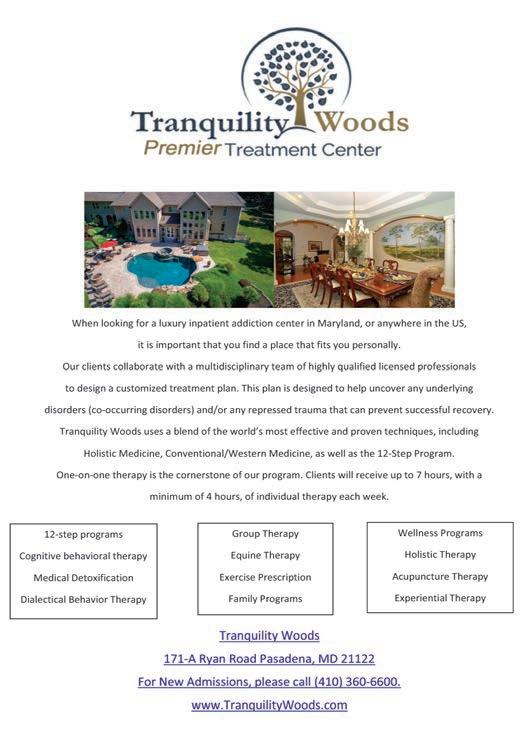
TheInstitute for the Advancement of Behavioral Healthcare recently conducted a survey of the audiences for Addiction Professional and the annual National Rx Drug Abuse and Heroin Summit and found that trends in stimulant use are not going unnoticed in the treatment community.
Methamphetamine and amphetamines generally placed second behind opioids and heroin as drugs of concern in respondents’ communities. While opioids and heroin were named as the drugs of most concern by more than 68% of respondents, methamphetamine and amphetamines placed second at just over 16%, ahead of options such as benzodiazepines and marijuana. Moreover, nearly 57% of the respondents checked
COVER STORY 12 FALL 2017 ADDICTION PROFESSIONAL WWW.ADDICTIONPRO.COM
offon the statement, “The situation is deteriorating: More people are using stimulants.” Thatcompared with around 37.5% who said stimulant use is stable and 5.5% percent who said fewer people are using stimulants. Thesurvey overall garnered nearly 1,500 responses.
In another findingof note, survey participants tended to believe that while the level of attention to stimulant use was sufficienamong treatment providers and in law enforcement, there has been less response overall from educators, the public health community and government policymakers.

IMPLICATIONS FOR PROVIDERS

Theabsence of approved medication treatments for cocaine and other stimulant addiction certainly adds to the level of concern about the implications of a worsening stimulant problem. While there have been some promising developments in research, prospects for arrivals into the marketplace still appear years away.
Researchers and specialty pharmaceutical company Embera NeuroTherpeutics, Inc., have been examining the link between stress and addiction as
they study whether a combination of the benzodiazepine oxazepam and the cortisol synthesis inhibitor metyrapone could become the breakthrough drug for cocaine dependence. While the original research grant in this area dates to 2010, best-case estimates would place a medication before the Food and Drug Administration (FDA) no sooner than 2023.

Similarly, there has been anticipation over development of an anti-cocaine vaccine that would activate an immune response in humans. Thiswould mean that in any subsequent use of cocaine, the drug would be blocked from reaching the brain. Promising research on animals led to the launch of Phase I testing of the “dAd5GNE” vaccine in humans last year at New York-Presbyterian and Weill Cornell Medicine. But that trial probably will not be completed until 2019, and that would be only the firstof several required steps toward an eventual approval.
In the meantime, those who closely watch emerging drug use patterns urge policy leaders and the treatment community to do the same. “It’s really important for healthcare professionals to stay abreast of current trends,” says Nichols. “Trends can help us identify potential concerns before they become a huge problem.”
Hall, who has witnessed several drug crises in Florida over his career, also keeps in mind that some phenomena remain constant. “With these epidemics, alcohol has been there through all of them,” he says. “Certainly alcohol is one of the ingredients in the stomach’s punch bowl of polysubstance use.”

COVER STORY WWW.ADDICTIONPRO.COM 13
Us!
further explore this important topic, the Institute for the Advancement of Behavioral Healthcare is launching the National Cocaine, Meth & Stimulant Summit in 2018, along with a series of e-newsletters and webinars on this issue. To receive the e-newsletter and details on the upcoming conference, visit: iabhc.com/stimulants NOW HIRING! Immediate openings full time & part time Our mission is to save 1,000,000 lives from addiction 1 neighborhood at a time. Join us in the fight against the opiod epidemic Call Today 833-RCA-JOBS
Join
To
Gary A. Enos is Editor of Addiction Professional.




Honoring the Strength & Sacrifices of our Military Families Thank You. 0LOLWDU\�)DPLO\�$SSUHFLDWLRQ�0RQWK Ϣϩ Ϡϕ ϥ�ӲӰӱቱ
BY TOM
n the whole, addiction treatment clinicians believe their organizations are doing a better job of addressing the self-care needs of staffmembers. A growing number of clinicians say they are fairly compensated for their work. But is it enough to keep them in the field?
At a time when caseloads continue to grow and extra hours pile up, an increasing number of clinicians aren’t so sure.
Conducted in September, the third annual Addiction Pro-
71.3%
fessional Quality of Life Survey drew responses from more than 650 clinicians. Thesurvey is open to all clinicians in the field,and therefore, the individuals who have participated have varied from year to year.
While more than half of the respondents said they plan to continue working in the fielduntil they retire, the percentage of those who expect to do so dropped 9% from 2016 and 12% from the inaugural survey in 2015.
Responses in general painted a picture of clinicians making the most of their hours and understanding the importance of self-care, but with more possessing a willingness to consider other career options.
68.1%
58.9% 2015 2016 2017
BUSINESS OPERATIONS 16 FALL 2017 ADDICTION PROFESSIONAL WWW.ADDICTIONPRO.COM
“I plan to stay in the field until I retir.”
Clinicians are reining in hours and practicing self-care, but more are open to exploring their career options
VALENTINO
IN IT FOR THE LONG HAUL?
A growing number of clinicians surveyed said they can see a future that doesn’t include working in addiction treatment. Two years ago, 71% said they planned to continue working in the addiction treatment fielduntil they retired. Now, that figue has dropped to 59%, with 17% of respondents saying they would stay in the fieldfor a while, but expect to eventually find a nw career, up from 9.8% in 2015.
Jonathan Maxson, a treatment consultant who specializes in short- and long-term recovery coaching and sober companion work for Recovery Care Partner in Silver Spring, Md., says that although he personally expects to stay in addiction treatment until retirement, he’s not surprised that more clinicians are weighing whether to move on.
“Not at all,” he says. “For so many of the treatment centers I work with, the case managers are trying to manage 10, 15, 20, 30 people and their families. A lot of them are overworked. Even in some of the most premier treatment centers, the people are burned out.”
HANDLING HEAVY WORKLOADS
Notably, respondents to the survey once again said their caseloads have increased over the previous two years, but fewer said they are working more hours than they expect and the percentage of clinicians who said their caseload was too heavy was the lowest it has been in the three years of the survey.
Of those surveyed for 2017, 52% said their caseload has increased, continuing an upward trend from 47% in 2015 and 51.3% in 2016. Meanwhile, 19.5% of respondents said their caseload is too heavy, a decrease from the previous two years.
Shantelle Collins, MS, LCDC-I, is a project manager of substance use disorder outpatient programs at My Health My Resources, Tarrant County in Fort Worth, Texas. Collins, who has worked in the fieldsince 2004 and in her current role since 2013, says the evolution of treatment best practices throughout her career has played a key role in changes to her workload.
“What we’re looking at now is dealing with the whole person as opposed to the services being provided,” Collins says. “Now we’re focusing more on the individual as they get better. If substance abuse or mental health or primary care needs are an issue, we’re trying to integrate all of those into one so we can deal with that person.”
Theamount of extra work time clinicians are putting in continues to be all over the board. Themost common response regarding unexpected/ unscheduled work time in a typical week was between one and three hours (40.4%).
Maria Landry, an outpatient counselor with OneEighty, which offerssubstance abuse prevention, intervention and treatment services in Wooster, Ohio, is one example of walking the tightrope of a heavy caseload while reining in hours. She works an even 40 hours per week—a practice that is encouraged by her employer—but says she sees clients for an average of 25 hours a week.
“Theyallow us to set our own schedules, and I’m one of those Type A personalities,” she says. “I, unfortunately, schedule myself too frequently without breaks in between. Usually, I
13.3% decreased
34.7% stayed the same
52.0% say their caseload has increased in the past two years.
BUSINESS OPERATIONS WWW.ADDICTIONPRO.COM 17
“For so many of the treatment centers I work with, the case managers are trying to manage 10, 15, 20, 30 people and their families. A lot of them are overworked. Even in some of the most premier treatment centers, the people are burned out.”
- Jonathan Maxson
week, but it’s an ongoing focus with her equine-assisted psychotherapy at Take Flight Farms in Omaha, Neb., as staff members will work with the horses on
site to address their own needs.

Nider also serves as an adjunct instructor for the Counseling Program at Doane University in Crete, Neb., as well as the Human Services department at Southeast Community College in Lincoln, where she helps students gain a deeper understanding of self-care best practices that keep clinicians in a healthy frame of mind.
“A lot of times, we think self-care is taking a vacation, or getting a massage or pedicure. Tha’s not necessarily it,” Nider says. “It’s talking about things, doing things, getting other people in your life on board to say, ‘Have you experienced this?’ It’s normalizing some of the things we hear and see on a regular basis. We can’t talk about these things with our husbands or wives or friends who don’t work in this field.We have to have our colleagues. Theyare critical in our selfcare process because of the things we do, see and hear.”
 Tom Valentino is Senior Editor of Addiction Professional.
Tom Valentino is Senior Editor of Addiction Professional.



WWW.ADDICTIONPRO.COM
BUILD YOUR OWN INNOVATIVE COMPREHENSIVE OUTPATIENT ADDICTION TREATMENT SERVICE Call Today 951.296.9831 MANIFEST Treatment Consulting MANIFESTTREATMENT.COM Now Is the Time To Act! Self-care needs for clinical staff in the workplace 25.4% “It receives little to no attention” 33.4% “It’s a high priority” 41.2% “It’s an occasional topic of discussion in the workplace”
"We can’t talk about these things with our husbands or wives or friends who don’t work in this field. We have to have our colleagues."
- Keri Nider


We know you want the best for your teen. So do we. What changes do you want to see in your child’s life so you can trust that they’re on the right path? All of us at Newport Academy have been in your shoes, and we found the path to healing. Call us. Let’s eliminate your fears and change your child’s life for the better, starting now. LEARN MORE Call 877-628-3367 or visit newportacademy.com MENTAL HEALTH EATING DISORDERS SUBSTANCE ABUSE Newport Academy Empowering Teens. Restoring Families.
Participants in the Addiction Professional Quality of Life Survey weighed in on
several other topics:
• Compensation. Nearly 29% of respondents said they feel their annual salary adequately reflectstheir training, experience and demands of their job. That is a 4% increase from 2016, the firstyear the question of compensation was included in the survey.


Does your salary reflect your training, experience and job demands?
20162017


• Clinical supervision. About half (49.9%) of respondents have favorable views on the quality of their clinical supervision (23.5% offering a rating of “very good,” and 26.4% “good”). These figuresare in line with responses given in 2015 and 2016.
How do you rate the quality of clinical supervision you experience?
• Philosophical differences. This year, 34.9% said they have quit a job in the addiction fieldbecause they had disagreed with the treatment philosophy or quality of care at a facility, a 5% increase from 2016, but still below 2015 (38.2%).
Have you quit a job over a disagreement with a facility’s treatment philosophy or quality of care?
• Training and credentialing. While 44.3% of respondents are not pursuing any training right now, obtaining a new certificationor license was the most common form of education being pursued.
Which training/credentialing elements are you pursuing?
BUSINESS
20 FALL 2017 ADDICTION PROFESSIONAL WWW.ADDICTIONPRO.COM ADDITIONAL
OPERATIONS
SURVEY INSIGHTS
Needs Improvement Not good at all N/A Very Good Good Neutral
28.7% YES YES NO NO 34.9% 65.2% YES 71.3% NO 24.7% 75.3%
Not trainingpursuing right now New certification or license Specialized training in a treatment approach Newfromdegree an academic institution 29.5% 26.6% 9.2% 44.3%
NOTE: Numbers do not add up to 100% in some cases due to rounding.
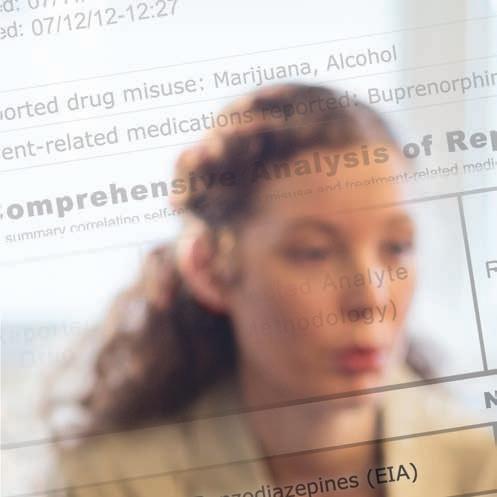





2017 Title Sponsor National Conference on Addiction Disorders Furthering recovery by engaging clinicians in conversations based on analytics, cutting-edge research, and trust Learn more about Dominion Diagnostics online at: www.dominiondiagnostics.com | @domdiag
of the addiction treatment and recovery community for more than two decades, Dominion Diagnostics delivers the most sophisticated, actionable clinical information to treatment professionals, and supports them with the latest technologies and best education available as they work to improve outcomes.
Part
Surviving an overdose: What’s next?
Peers are successfully engaging rescued patients in a path toward recovery
BY ALISON KNOPF
ecovery coaches who are peers—individuals in recovery—are now in hospital emergency departments (EDs) where patients have been rescued from opioid overdoses via naloxone, providing hope and a path toward treatment. Thefirstprogram of its kind in the country, Anchor ED, based in Providence, R.I., is making this happen and is being viewed as a model by other states.
In the program, peer recovery coaches aim to convince patients in the ED to move forward into recovery. Thegoal from the point of view of the state of Rhode Island, which is helping to fund the program, is to get every overdose survivor in touch with a recovery coach.
Recovery coaches at Anchor do not steer patients toward any particular treatment program or type of treatment, or even to treatment itself, says Deb Dettor, director of recovery support services at Anchor Recovery Community Centers, a recovery support component of TheProvidence Center community behavioral health organization.
“We give them the whole gamut of options,” Dettor says. “If they want recovery coaching, if they want [medication treatment], if they want an inpatient program—we will literally help them go where they want to go. If they say on the spot where they would like to go, we can get them there.”
Themindset of people who have just been rescued from an opioid overdose is not conducive to thinking clearly about next steps, however. Moreover, that says nothing of the physical illness they are experiencing due to withdrawal symptoms. Th naloxone that saves someone’s life also precipitates withdrawal in the opioid-dependent.
“You didn’t want to be here, you didn’t want to see any of us, you didn’t want to end up in the hospital with an OD being ‘Narcan-ed’ back to life, you are physically sick because of being in withdrawal, you are angry,” says Dettor. “Thee are so many barriers to seeing anyone at that point. So when someone says to you, ‘Do you want to talk to a recovery coach?’, you say, ‘I don’t want to see anybody.’ Tha’s a real barrier.”
What is often keeping the patient from saying yes is shame, says Dettor. “Thisillness is just maddening in that way—the level of shame, embarrassment, horror,” she says.
She recalls the time when she went to the hospital with alcohol poisoning. “Thee you are covered in puke. You can’t believe your life has come to this place where you have no control,” she says.
INTERPRETING THE EARLY DATA
Anchor ED was under the gun back in the summer when a report revealed that 45% of patients recovering from overdoses in Rhode Island hospitals do not see a recovery coach. But Dettor says it is not accurate to say that 45% of overdose survivors refused intervention. Rather, 45% were not actually connected to treatment—perhaps because they declined to meet with a recovery coach, or because they were never offeed the chance.
“All of the hospitals in Rhode Island are supposed to ask every person [who survives an overdose] if they want to see a recovery coach,” Dettor says. “Sometimes they don’t do that. Staff may not be trained”
If the patient is offeed the chance to meet with a recovery coach and turns it down, that can be addressed in several ways, Dettor says. For example, it might be better if the recovery coach could just talk to the person, instead of the hospital staffer first asking the patient if this is acceptabl
MEDICAL SERVICES 22 FALL 2017 ADDICTION PROFESSIONAL WW W.ADDICTIONPRO.COM
Anchor has started a pilot program in which every overdose survivor who says no to seeing a recovery coach will be asked if he/she could be contacted the next day. For this to work, the patient would have to sign a release form, allowing the hospital to give the patient’s information to Anchor ED, says Dettor.
Anchor also asks the hospitals to give information about the recovery coach to patients, although that leaves it up to the patient to reach out. “Often social workers who discharge patients say to contact us,” says Dettor.
Anchor’s numbers show that of all people who were seen in the emergency department by a recovery coach, 86.8% did agree to engage in some kind of recovery plan, she says.
“We might see you in the emergency department and not get you engaged, but then the outreach team may see you in the street and approach you there,” adds Dettor. “Our goal is always about connecting you with resources to help you get into recovery.”
Rebecca Boss, the state substance abuse director in Rhode Island, has championed the Anchor ED program from an early stage, getting other single state authorities interested in how it works. “Thee was a great deal of interest,” recalls Rob Morrison, executive director of the National Association of State Alcohol and Drug Abuse Directors (NASADAD). “Other states gravitated to her to talk about the mechanics.”
Anchor ED began with a conversation Boss had with people at Anchor, when she heard them say, “People just want to talk to somebody,” says Morrison. “Thatwas the light bulb moment. The just want to talk to someone who’s been where they are.”
The National Rx Drug Abuse & Heroin Summit is where solutions are formulated, stakeholders convene, and change begins. Be part of the international discussion on addressing the opioid crisis by attending the 2018 Summit.

Who Attends:
• Clinicians, counselors, social workers, therapists, psychologists, interventionists
• Physicians, psychiatrists, nurses, pharmacists, dentists
• Advocates, families, and people in recovery
• Law enforcement personnel
• Public health and prevention officials
• Federal, state, and local officials and lawmakers
• Education specialists and researchers
• Treatment center owners and operators
• Lawyers
WWW.ADDICTIONPRO.COM 23
SAVE THE DATE April 2-5, 2018|Hyatt Regency Atlanta
Be Part of the Largest Annual Conference Addressing the Opioid Crisis EDUCATIONAL ADVISOR
www.NationalRxDrugAbuseSummit.org
PHOTO: PETE WINKEL/GPA
- Kimberly A. Johnson,
LAW ENFORCEMENT INVOLVEMENT
While some states may choose to have public safety officer such as police or fie involved in peer recovery interactions with overdose victims, that doesn’t happen in Rhode Island, says Dettor. “We have no connection with law enforcement,” she says. “In Pawtucket, where our primary recovery center is located, the police department is very supportive. … If we need help from them they’re right here, in a positive way.”
Thee have been concerns that police involvement could mean the overdose victim will be asked about where the drugs were obtained; law enforcement has a legitimate mission to keep these drugs offthe streets. But this also could have a chilling effecton patients’ willingness to be contacted by a police-related recovery coach.
“We don’t care where you got your drugs,” says Dettor. “We’re more interested in how we can get you into recovery.”
Dettor, who worked for two decades in treatment, has been working in recovery support since 2004. “To me, this is where the hope is,” she says. “We’re having a much bigger success with engagement.”
“I think it’s great that the police departments are trying this,” says Patty McCarthy Metcalf, executive director of Faces and Voices of Recovery. “But I think it’s a slippery slope. Unless they are guided by standards, then we’re creating something that could be a sideline and not real recovery coaching.”
Standards for peer work include appropriate training in ethics and boundaries, and supervision of peers by programs that understand the culture of peer recovery, says Metcalf. At Anchor, all of the recovery coaches are in recovery from a substance use disorder (as opposed to a process addiction), and some have been rescued with naloxone.
“Recovery coaches will use their own story when it’s appropriate to identify what they have gone through,” says Dettor.
The Anchor ED program —created by Anchor Recovery Community Centers, TheProvidence Center and the Rhode Island Department of Health—is part of a much larger system, including two recovery community centers where people can come in every day to receive a variety of support services. Anchor also houses recovery coaches in the state's prison facilities.
DEBATING PEER QUALIFICATIONS
Does someone need to have professional training, a degree, or a license to be a peer recovery coach? It’s one of the debates, says Kimberly A. Johnson, PhD, director of the federal Center for Substance Abuse Treatment, under SAMHSA.
“Do you need to have a master’s degree to have that conversation? Many people have answered, ‘No, you don’t need to have a master’s degree to do motivational interviewing and get someone to engage in treatment,’ ” Johnson says.
Join Us!
Despite the many tragedies resulting from prescription drug and opioid abuse, real change is happening, lives are transforming, and helping professionals are making a difference. Join leading researchers and clinical experts tackling this crisis—and be part of the solution—at The Opioid Crisis: Strategies for Treatment and Recovery, a Summit for Clinical Excellence event March 7-8, 2018, in Chicago.
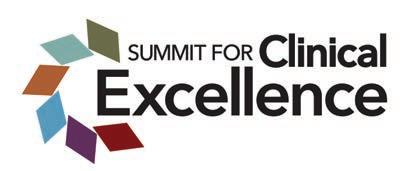
For more information: vendome.swoogo.com/2018-ChicagoOpioid-Summit
What she likes about Anchor is that its effots are not tied to one treatment center. “Theyjust ask if someone would be interested in diffeent things that are out there,” she says.
At a time when someone has just gotten revived from an overdose, the peer “has a level of understanding of what that experience is like,” Johnson says. “It’s a very similar model to the rape crisis model, in which they send people who have had this experience. Thepeer model has been used for other emergencies, so it’s not an unknown.”
Another benefitof the Anchor model is that the overdose survivor doesn’t have to engage right then and there, in the
MEDICAL SERVICES 24 FALL 2017 ADDICTION PROFESSIONAL W WW.ADDICTIONPRO.COM
“This whole concept of trying to reach out and find people and engage them in treatment, instead of just waiting for them to show up, is a good thing.”
PhD
emergency department. “A lot of people don’t decide on treatment at that time,” Johnson says. “So what Anchor does—following up over time—is critical.”
SAMHSA’s State Targeted Response to the Opioid Crisis grants, the two-year, $1 billion program authorized by the 21st Century Cures Act, is helping to fund new initiatives following in the footsteps of Anchor ED, says Johnson. New Jersey is using $3.5 million of its $13 million for each year for the Opioid Overdose Recovery Program, which was started before the grant but is being continued with its help. “We also have grants to start up peer recovery organizations,” says Johnson.
“Thiswhole concept of trying to reach out and findpeople and engage them in treatment, instead of just waiting for them to show up, is a good thing,” she adds. “Thee might be some issues with some of the models, but people are realizing it’s not just about having an open door, that we need to take the next step and reach out to people and get them engaged. And when they say yes, we need to have treatment for them.” Thattreatment isn’t necessarily going to be a residential program for every person, she says.
“Thenature of the crisis is forcing things to speed up so that diffeent approaches are tried,” says NASADAD’s Morrison. “Theyknow it’s not always a slam-dunk the first time, but if there’s something done, other than walking out the door, that gives some level of hope.”
EXPERIMENTING WITH SERVICE MOD ELS
“There’s a lot of experimentation going on with the emergency room outreach right now,” says Kimberly Johnson of the Center for Substance Abuse Treatment.
What organizations need to think about in setting up these programs is clear protocols with the hospitals. “What does that engagement look like, who participates, how does the patient connect with the peer?” says Johnson. “Right now there is a lot of debate, but no good answers, about whether peers or other community health workers are the right people” to staff this outreach. “There’s not a lot of good research,” she adds.
In Ohio, law enforcement is doing the outreach. In New Hampshire, it’s the fire depatments. Then there are the states where police departments are imitating the Police Assisted Addiction Recovery Initiative model, in which people can come in to police headquarters and ask for help, without fear of arrest.
It would be beneficial to find out if the results from law enforcemen related peer programs differ from those in programs run by health departments, such as Rhode Island’s, says Johnson.
ÑR.
NOVEMBER 2017
ISBN: 978-1-942094-52-4

E-book: 978-1-942094-53-1
196 pages • $16.95 • 6 x 9
centralrecoverypress.com

MEDICAL SERVICES WWW.ADDICTIONPRO.COM 25
Alison Knopf is a freelance writer based in New York.
A physical and spiritual guide that complements and augments twelvestep practice by investigating each step through the lens of yoga.
“...filled with wisdom and practices to deepen recovery from any addiction.”
Nikki Myers, founder of Y12SR: The Yoga of 12-Step Recovery
Cutting off wealth from patients doesn’t work
Clinicians working with wealthy families can instead use money as a motivator BY
PAUL HOKEMEYER, JD, PHD
hile most treatment professionals acknowledge that addictive disorders don’t discriminate based on socioeconomic class, too few are able to negotiate the unique dynamics that arise in the context of ultra-high net worth (UHNW) families. This unfortunate trend continues despite evidence indicating these families suffer from addictive and mental health disorders at astronomical rates. A recent study by Campden Wealth, a globally recognized financialservices firm,found that of the families it serves, 71% are affected y an addictive or mental health disorder.
To combat the destruction that accompanies these affltions, families must intervene in a way that is embraced by the person needing help. Wealth can be used to motivate patients rather than push them deeper into the clutches of their disease. Though this approach, patients will enter treatment with the proper state of mind and motivation to maximize their long-term success after being discharged.
THE PROBLEM
All UHNW families know there is no shortage of people outside their system eager to comply with their financiallyincentivized requests. Within the family, however, a diffeent story is frequently told. Thinkof the son who wrecks the family car in a drunken binge and, when the family insists he seek help, escalates his drinking. Or the daughter who becomes addicted to prescription pain medication after sufferinga sports-related injury and, in response to the family’s interventions, falls into the deadly clutches of heroin that she buys on the street.
Unsuccessful in their attempts to address the problem from within, UHNW families often seek the advice of outside
treatment professionals who advise that they leverage financial resources and “cut off”the afflictefamily member. While powerful and effectie in the short run, such a strategy sabotages the patient’s long-term success and causes a destructive backlash.
To understand why this dynamic exists, we must look at the groundbreaking work of University of North Carolina Professor Alison Fragale. She found that to be effectie, power must be asserted with status. Fragale definedpower as “the extent to which an individual can control others’ outcomes by granting or withholding valued resources.”1
According to Fragale, status is “the extent to which an individual is respected, admired and highly regarded.”1 Power exerted without status will cause the person acted upon to respond in ways that punish the person asserting the power.
And money holds great power.2 Thisis especially true in UHNW families, where gatekeepers such as parents and trustees have the discretion to grant or withhold other family members’ wealth. Regardless of how benevolent the arrangement was intended to be, this financialreality is a fertile ground for a host of negative reactions and unhealthy dynamics. At the top of the list are resentment of the gatekeeper’s power and fear on the part of beneficiariesthat absent their wealth, they would be unable to survive in the world on their own.
When the dependent person has an addictive disorder, these dynamics become intensified.Theefore, any financia interventions intended to motivate a patient must be executed through the respect and regard of the human being that lies deep within the veneer of the patient’s symptomology. Such an approach will imbue the family member exerting the power with enough status to avoid a backlash and allow the patient to take ownership of his/her life.
But over the years, ill-advised UHNW families have been observed using the power inherent in their wealth to force a
COUNSELING 26 FALL 2017 ADDICTION PROFESSIONAL WWW.ADDICTIONPRO.COM
member with a substance abuse disorder into experiencing highly ineffectie results. Instead of collaborating with the patient in ways that allow the person dignity in care, they shove their demands down his/her throat. When the patient vomits them out, they double down even more and push the patient further away from the family.
Just over a year ago, I had the privilege of working with a UHNW family from the United Arab Emirates that utilized the services of a well-respected American interventionist, with emotionally damaging and financiallywasteful results. (Th identifying details of this case have been altered to protect the family’s confidentialit.) Thefamily approached me after paying a U.S. treatment center close to $200,000 to babysit their son for 75 days. While physically present in the program, the son refused to sign the proper releases, fell asleep in group, and failed to engage with his primary therapist. Thepatient, a 47-year-old whose $125 million trust was ruled over by his 83-year-old father, suffeed from an addiction to prescription opioid medications and was morbidly obese. He also happened to be a gay man whose “lifestyle” was disapproved of by his father and several other family members.

Over the last decade, the family had intervened on the patient on three occasions by cutting offhis funds and insisting he was a “sick man” who needed “curing.” Thepatient would comply with family members’ requests to regain access to the funds, but soon after being out of treatment, he would return to his destructive ways. In the process, the family wasted precious emotional, relational and financialresources, calcifiedtheir diffeences and painted the son into a highly shaming corner. Furious over being robbed of his dignity and for being expected to act like an adult in the wake of being treated like an errant adolescent, the son acted out in hostile and self-destructing ways, constantly creating chaos.
THE SOLUTION
To transcend the destructive relational pattern between the family and the son, I joined with the family in a way that allowed members to see the objective facts related to their dynamic and step back from its emotional reactivity. The goal was to give each family member the sense of being seen and heard as a human being rather than as an object to be manipulated.
In more concrete terms, the father needed to stop being seen by the son as an ATM whose sole purpose in life was to fund his existence, while the son needed to stop being seen
COUNSELING WWW.ADDICTIONPRO.COM 27
Power exerted without status will cause the person acted upon to respond in ways that punish the person asserting the power.
LEARN MORE AT SignatureRecovery.org OR 844.454.1329 McLean Fernside McLean
Cottage
ME
MA
Overcoming addiction
understanding addiction.
Borden
Camden,
Princeton,
The clinical expertise at McLean Hospital’s Signature Recovery Programs is guided by the latest evidence-based treatment and recovery methods, helping treatment resistant adults reclaim their lives at two exceptional locations.
requires
as an errant child whose existence tarnished the father’s gild. Toward this end, I helped the father understand that his threats to cut offhis son forced the son to act out in punitive, albeit self-destructive, ways. With the son, I worked to show him how the chaos and crisis he was constantly creating caused his father to deepen his beliefs that his son was fatally flaed.
I entered the system through the father, the person who held the most tangible power. While the father lacked language to




describe his emotions, he was incredibly adept at understanding the language of finance.Accordingly, we started with an accounting of the staggering amount of money he had spent effectiely locking up his son in a legion of elite treatment centers around the globe. From a return-on-investment perspective, he was embarrassed to see that the money was not well spent, and in this awareness he became willing to consider modificationsin how he viewed and treated his son.
Next, I began my work with the son to enable him to see that he would be well-served to begin acting like an adult and assuming responsibility for his behaviors. Fortunately, both members of the family gained enough insight to agree to try something diffeent.

The“diffeent” the father agreed to try was to bring his son into the dialogue of his treatment as an adult who was allowed a voice in his care. He also agreed to stop the ridiculous charade of “cutting off”a middle-aged son who had never worked a day in his life and was worth $125 million.
In this case, although he vehemently denied it, the father had manipulated the son’s financesto punish him for his lifestyle, justifying his actions based on the son's financial “irresponsibility” and “constant manipulation.” Several months into treatment, the father was able to see that he had never allowed the son any financialautonomy and was profoundly disappointed and angry that his son had taken a non-traditional path. Th son in turn punished his father for this manipulation by escalating his unacceptable behavior.
It took nearly fie months, but the son returned to treatment. Th facility he chose was not one that his father would have, but it was one that gave the son the loudest voice in his treatment. Thefather also agreed to stop threatening the son with a financialcutoff,and we fashioned a financialplan for the son that allowed him to live a life
COUNSELING 28 FALL 2017 ADDICTION PROFESSIONAL WWW.ADDICTIONPRO.COM
ADDICTION TREATMENT that works www.mtregis.com 540.389.4761
We started with an accounting of the staggering amount of money he had spent effectively locking up his son in a legion of elite treatment centers.
approaching trauma treatment through neuroscience

Meadows Behavioral Healthcare is a continuum of highly individualized treatment services encompassing emotional trauma, addiction, eating disorders, and related mentalhealth conditions. our core treatment approach focuses on nervous system regulation and related emotional trauma, making our programs uniquely able to help complex patients. with all of our specialized inpatient programs you can expect:
• Integratedtraumaservices
• Signature workshop–Survivors: healing childhood relational trauma
• Extensiveassessmentsanddiagnosis
• Multi-disciplinaryteamofproviders,includingapsychiatricspecialist,amedical physician, 24-hour nursing, registered dietitians, and licensed master’s and doctoral level therapists
• Neurofeedbacktoaddressbraindysregulationandenhancetreatment
• Individualizedtherapeuticmodalities,suchasSomaticExperiencing® (Se), eye movement Desensitization and reprocessing (emDr), Sensorimotor psychotherapy, and emotional Freedom technique
• On-siteBrainCentersdesignedtopromoteself-regulationskillsthatenhanceand expedite the recovery process

• Experientialwaysoflearning,suchasEquineAssistedTherapy,ExpressiveArtsTherapy, and ropes course
• Extensivefamilyprogramming
relational trauma: The Meadows is a premier provider of behavioral health services focused on treating individuals who suffer from complex developmental trauma and subsequent dysfunctional behaviors.
eatinG DiSorDerS: Remuda Ranch at The Meadows offers critical care/ inpatient, residential, and transitional living for women and girls with eating disorders and dual diagnosis.
YounG aDultS: Claudia Black Young Adult Center is specifically tailored to young adults who struggle with unresolved emotional trauma, addiction, or complex co-occurring conditions. S exual aDDiction: Gentle Path at The Meadows offers confidential treatment for men who battle sexual addiction, relationship addiction, or sexual anorexia and co-occurring conditions, such as substance use disorders.
women’S recoverY: Willow House at The Meadows is specifically designed to help women who struggle with relationship and intimacy disorders and co-occurring conditions, such as substance use disorders and other behavioral problems.
c omprehen S ive o utpatient proGram: The Meadows Outpatient Center provides up to 20 hours of clinical care per week and specialized group programming.
unique inten S ive S : Rio Retreat Center at The Meadows offers a variety of powerful intensive workshops that foster healing, discovery, and personal growth.
Contact us today to learn more about our family of specialized programs. 800.244.4949 www.themeadows.com
In-network with numerous insurance providers and will work with out of network benefits.
cushioned by his wealth, but with plenty of room for aspiration.
The son recently celebrated six months of continuous sobriety and has lost nearly 35 pounds. Instead of using his “allowance” to buy opioids and prostitutes, he’s allocating his capital to invest in a website for Palestinian women to photo document the trauma of their lives.

Thefather still struggles with his son’s choices, but he understands the consequences of his reactions. Most important, both family members understand the dynamics inherent in the diffeent forms of power they possess, and before acting out they look within to imbue their actions with status.

Paul Hokemeyer, JD, PhD, is a family and addictions therapist who works as a clinician and patient advocate to elite individuals and families around the world. In addition to maintaining a private clinical and consulting practice, Hokemeyer is senior clinical fellow at Caron Treatment Centers.

References
1. Fragale AR, Overbeck JR, Neale MA. Resourcesversus respect: Social judgments based on targets' power and status positions. J Exp Soc Psychol 2011;47:767-75.
2. Hokemeyer PL. Treating wealthy patients and their families: A guide for competent psychotherapeutic care. J Wealth Management 2012;15:9-11.
West: Multiple Perspectives on Trauma & Addiction, a Summit for Clinical Excellence event March 1-2, 2018, in Orange County, Calif. For more information: vendome. swoogo.com/2018-Orange-County
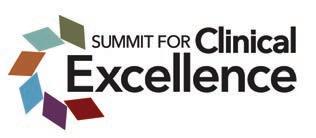
Timberline Knolls is a residential treatment center located on 43 beautiful acres just outside Chicago, offering a nurturing environment of recovery for women ages 12 and older struggling to overcome eating disorders, substance abuse, mood disorders, trauma and co-occurring disorders.
While there’s life, there’s hope.
Rooted in the principles of recovery and emphasizing spiritual growth, Timberline Knolls combines clinical services, education and expressive therapies to enhance the continuum of life-changing care. Striving to provide the most effective and highest quality individually tailored treatment, Timberline Knolls gives its residents hope again.
COUNSELING 30 FALL 2017 ADDICTION PROFESSIONAL WWW.ADDICTIONPRO.COM
40 Timberline Drive | Lemont, Illinois 60439 | 1.877.257.9611 www.timberlineknolls.com | info@timberlineknolls.com
Join Us! East
Meets




















» Sub-Acute Detoxification » Residential Substance Abuse Treatment » Residential Mental Health Treatment » Partial Hospitalization » Intensive Outpatient Therapy » Aftercare Services HIGHER STANDARDS. EXCEPTIONAL CARE. BETTER OUTCOMES. We accept many in-network and out-of-network insurance policies. Call Us Now: 866-544-8929 Newvistabh.com
Vista Behavioral Health’s family of treatment centers provides multidimensional, client-focused and evidenced-based treatment for mental health,
abuse and co-occuring disorders.
ourselves on offering a full continuum of care for every
of recovery.
New
substance
We pride
stage
Define recovery checkups as a level of care
A recovery checkup could be part of an annual physical for someone with a substance use disorder
BY MICHAEL WEINER, PHD, MCAP
hether a chronic disease is active or in remission, its progression is monitored. People with diabetes monitor their disease daily. Thesame can be said for people with severe hypertension. People with progressive arthritis have frequent visits with a rheumatologist. It’s possible that the only categories of chronic diseases that are not routinely monitored beyond a period of acute care are substance use disorders.
Thee are some encouraging developments. Physicians and pilots have achieved long-term recovery with a fie-year period of monitoring. Even so, chronic diseases are lifelong. The don’t automatically go into remission after fie years. Thee seems to be a need for periodic checkups over the course of a lifetime. Thefrequency may be quarterly, semi-annually, or annually. Check-ups for a chronic disease just make sense.
TheAmerican Society of Addiction Medicine (ASAM) describes levels of care depending upon the severity of a substance use disorder.1 Thelevels range from 0.5 for an extremely mild disorder to 4.00 for the most severe disorder. It is suggested that a fifthlevel be assigned to lifespan monitoring (0.25). An absolute minimal level of monitoring could come in the form of an annual recovery checkup, as suggested by fieldleader and historian William White.
What does a recovering person’s life look like as time goes on? Thelikelihood that a person with a substance use disorder will experience anxiety, depression, illness, joy, loss, pain, panic, sleep disorders, sorrow, stress, surgeries, etc., continues to increase. How might a person in recovery continue to
maintain abstinence through all of that? Theanswer is that not very many people do. Would a recovery checkup reduce the incidence of recurrences and/or minimize them? I think so.
CHECKUP AS ASSESSMENT
Let’s take a look at what a recovery checkup might look like. It is helpful to keep in mind that a checkup is an assessment. It’s an assessment of the quality of a patient’s recovery and a way to make it stronger. We conduct many assessments during the course of treatment: psychosocial, treatment plan reviews, discharge summaries that include recommendations for what to work on at the next level. Understanding that a recovery checkup is an assessment makes it logical to place all the information gathered into one of the six dimensions recommended by ASAM. So, for example, consider the information that would be gathered during a recovery checkup for a person who has maintained abstinence for two decades.
Dimension 1: Acute Intoxication/Withdrawal Potential. If this were an assessment of a person seeking an initial diagnosis and treatment recommendation, the question likely would be whether the patient’s withdrawal needed to be managed. However, we have already stated that this person has maintained abstinence for 20 years. Thee wouldn’t be any withdrawal to manage. Perhaps here, dimension 1 could be an appropriate place to review the person’s medications and medication history. Is the patient taking medications that could be harmful? Has the patient made decisions on his/her own regarding how to take or stop taking a medication? Making one’s own decisions about medications is not a good idea.
Dimension 2: Biomedical Conditions and Complications. Having a periodic physical examination is a concept
RECOVERY SUPPORT 32 FALL 2017 ADDICTION PROFESSIONAL WWW.ADDICTIONPRO.COM
that most people will accept. Particular systems may need special attention for a person with a substance use disorder (e.g., liver functioning).
Dimension 3: Emotional, Behavioral or Cognitive Conditions and Complications. This dimension is clearly not going to remain consistent over the course of decades. Thisis true of everyone, not just for people with co-occurring mental health disorders. A recurrence is likely when a person is coping with significantloss, as well as when a person is exuding self-confidence. Assessing dimension 3 can easily lead to an intervention that could prevent a recurrence.
Dimension 4: Readiness to Change. Thisnever remains the same. Every person in recovery can use a periodic boost.

Dimension 5: Relapse, Continued Use or Continued Problem Potential.

I imagine that the use of the term “relapse” will soon become “recurrence.” A patient’s history is very important here. Is there a history of recurrences? Can a patient identify, avoid and/or cope with triggers?
Dimension 6: Recovery Environment. Recovery environments change. A patient who started recovery in retail sales may have found a higher-paying job on a beer delivery truck. Thiscan be a no-brainer.
A checkup for a substance use disorder could easily become part of a regular physical examination. Most people are comfortable with, at a minimum, an annual checkup. Theoutcome of the recovery checkup could be anything from continuing on the current path to a recommendation to change the level of care. It is possible that an intervention involving others would be indicated. In any case, recurrences could be prevented
or minimized. Recurrences do not have to be a disaster.
NEED FOR A MEDICAL TEAM
Thee are advantages in belonging to a medical group where primary care physicians and specialists all have access to a patient’s chart. If an addiction specialist was part of that group, items such as prescribed medications could be recognized instantly. Thee are obvious advantages to that.
Thecost of the checkup could be lessened and the quality improved if dimensions 1 and 2 were performed by an addictions specialist (American Board of Addiction Medicine-certified)and if a licensed mental health professional performed dimensions 3, 4, 5 and 6. Anything identifiedon dimension 6 could be flaggedfor review by an addiction psychiatrist (ABAM-certifiedor certified in addiction pschiatry).
The bottom line needs to be that people with substance use disorders have an addictions specialist on their medical team, just as a diabetic has an endocrinologist. When a diabetic moves, he/she finds a new endocrinologist. The same should occur for a person with a substance use disorder.
Is all of this going to happen tomorrow? No. But it has to start somewhere. Why not now?
Michael Weiner, PhD, MCAP, is director of alumni services and a research consultant for Seaside/Behavioral Health of the Palm Beaches. He has been a director, trainer and researcher for Behavioral Health of the Palm Beaches since 1999.
References
1. Mee-Lee D, Shulman GD, Fishman MJ, et al. The ASAM riteria: Treatment Criteria for Addictive, SubstanceRelated, and Co-Occurring Conditions (3rd ed.). Carson City, Nev.: The Change Companies, 2013
Bradford’s new Bridge to Recovery program is designed to offer an effective and comprehensive intensive outpatient course of care, for individuals, who are participating in a physician managed program.
The program seeks to bridge the gap and provide a strong foundation in recovery from the emotional, mental, physical, and spiritual aspects of addiction.

RECOVERY SUPPORT WWW.ADDICTIONPRO.COM 33
(800) 879-7272 Bradfordhealth.com
PeacefulSurroundings, CareProfessional
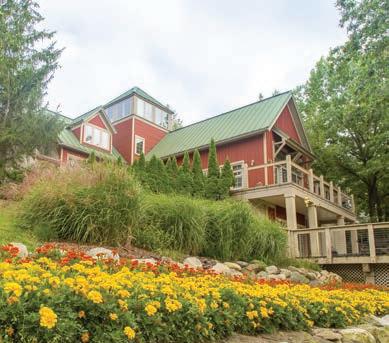




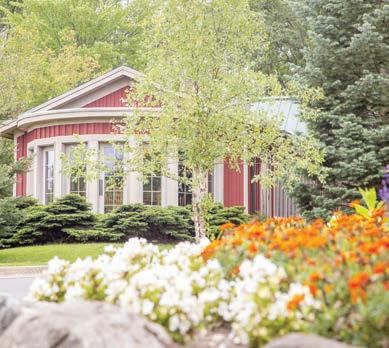

Treatment for addiction doesn’t have to feel cold and sterile to be effective. At Skywood Recovery, we believe that healing happens when patients feel comfortable with their surroundings and cared for by the professionals helping them. Our peaceful campus in the woodlands of Michigan is the perfect place to make a new start.

Skywood’s integrated approach to addressing addiction and co-occurring mental health issues means we don’t just treat the surface problem. We focus on resolving the deep-rooted emotional pain that often contributes to substance abuse in the first place.
“We see amazing people every day who are turning a corner and using the skills and strategies that they learned here to start new lives.”
–
SkywoodRecovery.com | 866-494-7787
Lori Ryland, CEO, Skywood Recovery
Social worker backs concept of shopping addiction

Characteristics of compulsive shopping in line with classified disorders
BY GARY A. ENOS
t a time when some are questioning whether the definitionof addiction has become too broad, the prospect that compulsive shopping could soon become an officiallclassifieddisorder would appear unlikely. But a licensed social worker in New York City who has conducted numerous groups with individuals who cannot control their spending has no qualms about using the addiction construct to describe what she sees.
“Absolutely I would call it an addiction,” says Laura MacLeod. “All the things are there,” from prominent triggers, such as resentment and boredom, to the patterns of repeated actions despite negative consequences, such as financialhardship and impaired relations with loved ones.
MacLeod believes in the healing power of groups in general and says she is seeing how people affectedby compulsive shopping benefitwhen they come to realize that others have experienced similar problems. A common element among those who join these groups, she says, is that up to that point, they generally have told no one else about their problem. MacLeod says some of that stems from fear that people won’t take the issue seriously, and might instead say something like, “What do you mean you can’t go into a store and not spend $5,000?”
INTERSECTION WITH OTHER PROBLEMS
In her observation of this issue, MacLeod says she has seen it more frequently in women than in men, although she also describes recently working with a male client in Ireland through video technology. She says the participants in her groups tend to be middle-aged, and have engaged in problematic shopping behavior for some time. Today’s home and online shopping options, along with easy access to credit and constant reminders of
sales and deals everywhere, certainly enhance the opportunities for these behaviors.
MacLeod says that when there are co-occurring issues present, compulsive shopping will most likely intersect with an eating disorder. Of course, since shopping addiction is not recognized in the DSM, this problem occurring in isolation cannot be treated under insurance billing.
She sees variation in levels of severity among the individuals with whom she has worked. One woman simply feared that the time she spent shopping online was taking too much energy away from her work. Others talk of the anxiety and guilt around having to hide purchases from their loved ones.
PROCESS ADDICTIONS 36 FALL 2017 ADDICTION PROFESSIONAL WWW.ADDICTIONPRO.COM
Rosecrance offers hope through lasting recovery
At Rosecrance, we understand the impact substance use and mental health disorders have on the lives of teens and adults and their loved ones. Lasting recovery requires a practical approach. Our experienced staff provides evidence-based treatment in a healing environment.
l Residential services
l Detoxification for adolescents and adults
l Substance abuse and mental health outpatient services
l Prevention and intervention
l Individualized assessment and treatment plans
l Co-occurring disorders treatment
l 12-Step programming
l Recovery homes
l Family programming
l Continuing care and alumni services
Rosecrance provides specialty behavioral health programming



l Teens
l Young adults
l First responders, uniformed personnel and veterans
l Older adults
l Pregnant women
Rosecrance is pleased to announce residential programming for adolescents and young adults with a primary diagnosis of mental health disorder such as anxiety, depression, bipolar disorder, trauma or PTSD.
Treatment modalities:
l Cognitive behavioral therapy
l Dialectical behavioral skills in a group setting
l Therapeutic recreation groups
To make a referral or for more information, call
888.928.5278
Adolescent and young adult residential treatment center
Rosecrance offers a continuum of care
Expanded programming
health
Treatment Services for mental
disorders
Another person might describe the “high” around having just landed the perfect designer handbag, only to realize on the drive home that maybe it’s not so perfect and the ideal purchase is still out there somewhere.
In the most extreme cases, MacLeod says, someone may have mortgaged the family home several times over and is about to face foreclosure, unbeknownst to the person with whom they share the home.

Although the DSM does not official list shopping addiction as a disorder, many consumer health websites freely use the term. In addition, the Illinois

Institute for Addiction Recovery describes the problem, attributing the information to the American Psychiatric Association, in part by stating, “It is definedas an impulse control disorder and has features similar to other addictive disorders without involving the use of an intoxicating drug.”
MacLeod sees feelings of resentment over anything from a bad day at the offic to an unhappy relationship as the most prominent trigger for compulsive shopping behavior. Thefeeling becomes one of, “I deserve something,” she says. “It’s almost like a child saying, ‘I want that candy. I should have it.’ Theyfeel entitled.”
INROADS IN GROUPS
Making a connection with others in group has been an important firststep for many of the people MacLeod has encountered. Once the individual feels accepted, he/ she can begin to explore the origins of the behaviors, ultimately identifying triggers and creating an action plan to cope with them—one that doesn’t involve going on the next shopping binge.
“Thenthey can step aside and work to stay in the discomfort,” she says. They also will ultimately hae to learn healthier patterns of shopping, since it is not realistic for them to be able to avoid ever setting foot in a store again.
PROCESS ADDICTIONS Joint Commission accreditation is widely recognized and respected as a mark of distinction by referral sources, families, state agencies, business partners/investors and payers. Validate the quality and safety of the services you provide and establish your credibility as a premier program by achieving Joint Commission accreditation. Make an informed choice. Schedule an introductory call at (630) 792-5771. Visit us at www.jointcommission.org/BHCS ® Raise the Bar Elevate your quality and safety with Joint Commission accreditation.
(Thisis another common element between an eating disorder and compulsive shopping.)
For therapists who work with a variety of issues, it might be difficulto uncover a shopping problem in a patient, as the shame that is involved often keeps these issues well hidden. MacLeod believes therapists should look out for any off-the-cuff comments from clients about buying, or money, especially if they recur. Even something such as, “my spouse doesn’t know how much I spend,” could serve as a warning sign.
Of course, therapist-client conversations about money can be uncomfortable, and generally have been frowned upon. “We don’t generally address money,” MacLeod says. “We’re not supposed to care about that, because we’re here to help people.”
Gary A. Enos is Editor of Addiction Professional.


PROCESS ADDICTIONS WWW.ADDICTIONPRO.COM 39
Today’s home and online shopping options, along with easy access to credit and constant reminders of sales and deals everywhere, certainly enhance the opportunities for these behaviors.
THE NUMBERS
Attitudes toward addiction
Gaps in the public's knowledge about substance use disorders found to perpetuate stigma and create challenges for providers
A study recently released by Caron Treatment Centers shows how public knowledge gaps around drug and alcohol addiction are perpetuating stigma and creating challenges for those trying to facilitate recovery. Thestudy, released in September, was conducted over a threeday period in April by Harris Poll among 2,184 adults, 692 of which are parents of children between the ages of 6 and 25.
66% believe addiction can be “cured.” The American Medical Association, meanwhile, recognizes addiction as a chronic disease that can be successfully managed.
18% believe recovery is hopeless if a relapse occurs after treatment.
55% believe a person with addiction would not be able to perform well at work.
50%
of parents say they would be very or somewhat uncomfortable around a son or daughter’s fiancé if the fiancé was two or more years into recovery and sober; 43% of parents hold such views toward a child’s teacher and 47% of total adults surveyed responded as such regarding a primary care physician.
40 FALL 2017 ADDICTION PROFESSIONAL WWW.ADDICTIONPRO.COM





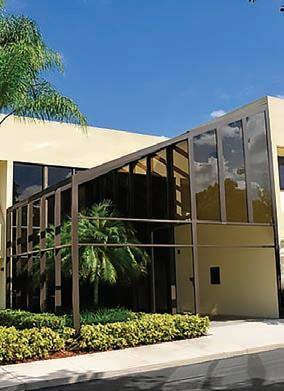
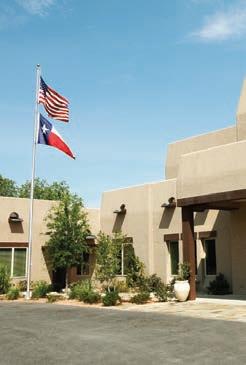

ADDICTION/SUBSTANCE ABUSE SERVICES
Addictions Treatment Center at Prairie View
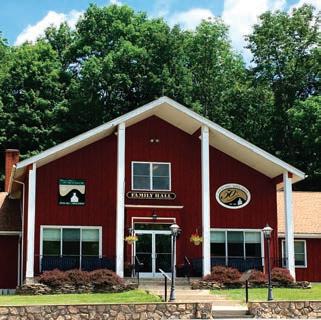

Newton, KS
Contact: Cody Beaton, LMSW, LAC (800) 992-6292
publicrelations@pvi.org
www.AddictionsAtPrairieView.org
Aware Recovery Care


Locations in Connecticut and New Hampshire
Contact: Matthew Eacott (203) 779-5799
meacott@awarerecoverycare.com
www.awarerecoverycare.com
BestNotes
Twin Falls, ID
Contact: Jon Winther (855) 489-1792
sales@bestnotes.com
www.bestnotes.com
Alina Lodge
Blairstown, NJ
Contact: Michael Hornstein (908) 362-6114
mhornstein@alinalodge.org
www.alinalodge.org
Amity Circle Tree Ranch
Tucson, AZ
Contact: Karla Butterbaugh (800) 381-3318
kbutterbaugh@amityfdn.org
www.circletreeranch.org
Our effective treatment approach is proven for individuals with a variety of needs which allows them to heal core traumas, identify strengths, improve self-esteem, learn life skills, and address the under-lying issues that contribute to their addiction and self-destructive behaviors.
At Circle Tree Ranch, we teach the importance of community and development of authentic relationships as a key to recovery. Our culturally competent curriculum teaches and empowers our students to succeed in today’s world. Circle Tree Ranch is CARF Accredited.
Aware Recovery Care (ARC) is the gold standard in In-Home Addiction Treatment™, with specially trained care teams that deliver compassionate individualized care throughout Connecticut and New Hampshire, and has been featured on NPR and NBC National news programs. Our innovative and unique evidence-based in-home addiction treatment program is achieving success rates that are 6 times the national average, was developed in conjunction with Yale Addiction Psychiatrists, is in-network with Anthem Blue Cross Blue Shield and affiliates, and accepts other insurers on an out of network basis. No need to leave home, stay at work or school, and maintain your privacy and anonymity in a comfortable environment! Try something different, and recover where you live!
BoardPrep Recovery Center


Tampa, FL
Contact: Liz Harden, LMHC, CAP, CCJAP (813) 600-7929
admissions@boardpreprecovery.com
www.boardpreprecovery.com
Leading-edge addiction and mental health rehab in beautiful South Tampa. BoardPrep experts specialize in the treatment of serious addiction and complex dual disorders. Based on the successful physician health recovery model, BoardPrep improves long-term results through enhanced structure, coaching and ongoing recovery monitoring. Services include inpatient, outpatient, licensed detox, interventions and court services. Rehab at BoardPrep is rooted in the 12-step model, with a robust family program and available extended care options.
Beacon House
Pacific Grove, CA
Contact: Phyllis Meagher
(800) 215-4733
www.beaconhouse.org
Beacon House is a private non-profit organization located in a historical Victorian-era mansion, just blocks from Monterey coastline. Beacon House has helped people achieve lasting sobriety from alcohol and other drugs by offering a full array of treatments including detoxification, residential, and outpatient services. Beacon House is licensed as an Adult Residential Recovery Facility and accredited by CARF. Our program is innovative, individualized and strongly rooted in the 12-steps and principles of recovery based treatment.
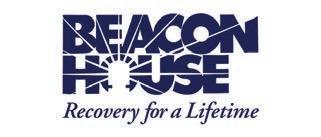
Caron Treatment Centers

Wernersville, PA (800) 678-2332
admissions@caron.org
www.caron.org
Caron’s treatment philosophy is centered on our family-focused addiction treatment and recovery plans. Our full-time, on-site, highly credentialed staff and comprehensive inpatient programs meet people where they are. Whether a patient needs residential assessment, detox, inpatient treatment, or long-term recovery support we are here to address individualized needs and circumstances. We offer inpatient teen, young adult, adult, older adult, relapse, healthcare, legal and executive programs to help patients and families begin to heal.
TREATMENT CENTER DIRECTORY 42 FALL 2017 ADDICTION PROFESSIONAL WWW.ADDICTIONPRO.COM
CenterPointe Hospital
St. Charles, MO
(800) 345-5407
www.centerpointehospital.com
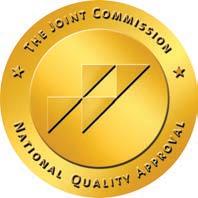

CenterPointe Hospital, located in the beautiful and historic St. Charles, Missouri, provides addiction and mental health treatment for adults at The Changing Pointe Residential Treatment Center. Our experienced physicians and staff provide treatment for complex conditions that accompany addiction such as trauma, depression, anxiety or bipolar disorder. Services include detox, 4-week residential treatment, outpatient programs, medication-assisted treatment, family services and aftercare. The path to healing begins here. This is your changing point.
The Clearing
Friday Harbor, WA
Contact: Joe Koelzer
(425) 366-8469
www.theclearingnw.com
The Clearing is an innovative residential treatment program focused on addressing the underlying core issues which fuel addiction, substance abuse, depression, anxiety, and other mental health conditions. Our program is dual diagnosis and an alternative to the 12-Steps. Participants join a small group of 10 for an uninterrupted, immersive, 28-day curriculum-based program in a serene, secluded recovery center located on San Juan Island, in the Puget Sound of Washington State.
Centra-Pathways Addiction & Recovery Services


Lynchburg, VA
Contact: Christy Meeks (866) 749-4455
christy.meeks@centrahealth.com
www.recoveratpathways.com
Located in the foothills of the Blue Ridge Mountains, Pathways Recovery Lodge provides a safe, healing environment, which allows clients to recover from their addictions and go on to lead fulfilling lives. Pathways offers private rooms and baths, exercise facilities, and 100 acres of serene landscape with breathtaking views. We treat people where they are in their unique struggle with addiction. We believe that each person under our care is worthy of our highest effort.
Dedicato Treatment Center
Sierra Madre CA
(626) 921-0113
drmarshall@dedicatotreatmentcenter. org
www.dedicatotreatmentcenter.com
CleanSlate

Brentwood, TN
www.cleanslatecenters.com
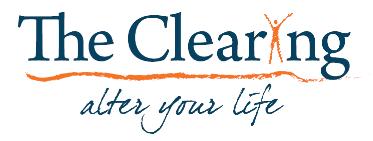
CleanSlate is a national medical group which provides medication assisted treatment for the chronic disease of addiction, primarily opioid and alcohol use disorders. Founded in 2009 in response to the growing opioid epidemic, CleanSlate has treated more than 25,000 patients in some of the states hit hardest by the opioid epidemic. The company has grown its national footprint, providing science and medicine-based treatment to more than 7,000 active patients at 30 centers across eight states.

Dedicato Treatment Center is licensed and certified by the State of California Department of Healthcare Services and Accredited by the Joint Commission. At Dedicato our mission is to provide responsible and comprehensive substance abuse treatment that will enhance our client’s ability to achieve optimal mental health and recovery from chemical dependency. We provide Detox and Substance Abuse Treatment including Co-Occurring mental health disorders.
Delphi Behavioral Health Group
Fort Lauderdale, FL
Contact: Admissions
(844) 201-5079
info@delphihealthgroup.com
www.delphihealthgroup.com
Delphi Behavioral Health Group’s mission is to guide individuals, families, and communities to an improved life through quality, on-demand addiction and mental health services. Delphi operates a network of treatment programs in small, comfortable, private settings where we treat the whole person rather than just the addiction. Our multi-disciplinary team of medical and clinical professionals tailor each clients' experience individually with a focus towards resolving underlying social and emotional issues while imparting the skills necessary to live a life free from drugs and alcohol. We offer a comprehensive continuum of care from medical detoxification to residential treatment, partial hospitalization, transitional living, outpatient services and alumni support for the return home. This is the Delphi Difference.
Destin Recovery
Destin, FL
Contact: Destin Recovery Admissions

(850) 837-8005
info@destinrecovery.com
www.destinrecovery.com
Located in Destin, Florida, Dr. Roland Reeves, MD and his medical team at Destin Recovery use evidence-based medicine and treat addiction and substance abuse as a chronic disease. They treat addiction with the same rigorous methodology as you would treat diabetes, heart disease or depression. Treatment involves the latest science that combines medical therapy and private counseling. This requires not only therapists and peer groups, but the ongoing involvement of a physician.
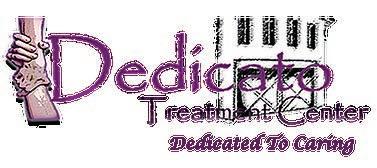
TREATMENT CENTER DIRECTORY WWW.ADDICTIONPRO.COM 43
Durango Recovery Center

Durango, CO
Contact: Admissions
(800) 913-7317
info@durangorecoverycenter.com
www.durangorecoverycenter.com
We are a progressive and holistic, non 12-step residential treatment facility for adult males struggling with drug addiction in beautiful Durango, Colorado. We utilize evidence-based medical, therapeutic and experiential treatment strategies to treat opioid addiction. We provide a path to wellness focused on empowerment, the cultivation of personal passions and the discovery of individual purpose.

Our services include medication-assisted treatment, transcranial magnetic stimulation, innovative behavioral therapies, experiential activities and nutritional education. Our outpatient treatment program is Southern Rockies Addiction Treatment Services.
Fellowship Hall, Inc.
Greensboro, NC
Contact: Randy Carter (800) 659-3381
randyc@fellowshiphall.com
www.fellowshiphall.com
John Volken Academy
Surrey, BC (604) 592-3001
info@volken.org

www.volken.org
The Program: The John Volken Academy is a long-term residential recovery program for young men and women ages 19 to 32. Participants advance their education, receive extensive career training, develop leadership & social skills, and build strong character.
The Cost: Our not-for-profit society is funded by private charitable foundations, friends of the Academy, and supporting businesses. Therefore, except for a one-time intake fee, the program is free.
Loma Linda University Behavioral Medicine Center
Redlands, CA (909) 558-9275
bmc-info@llu.edu
www.llubmc.org
Loma Linda University Behavioral Medicine

Center is an 89-bed, faith-based psychiatric hospital. We have been providing excellent care by compassionate and caring staff for more than 25 years. Our services include mental health, eating disorders, substance use disorder, chronic pain and medication dependency for youth, adults and seniors. We offer both inpatient and outpatient programs. For more information, call 909-5589275 or visit www.llubmc.org.
Living at Reflection
Novato, CA
Contact: Will Fluke (877) 781-5602
Will@Reflections.Rehab
www.Reflections.Rehab

Reflections is a premier, upscale dual-diagnosis residential facility treating 6 clients maximum. We provide intensive psychological care by doctorate level clinicians who specialize in co-occurring disorders and relapse prevention.
Genesis Recovery, Inc.
La Mesa, CA
Contact: Genesis Recovery Admissions (619) 797-7319

info@genesisrecovery.com
www.genesisrecovery.com
At Genesis Recovery we utilize the most comprehensive and effective models for treating and supporting individuals who are suffering from addictive disorders. We provide individualized services specifically designed to meet the resident wherever they may be in their relationship with drugs and/or alcohol. For more information, visit www.genesisrecovery.com
Harbor Village
Miami, FL
Contact: Harbor Village Admissions (844) 794-3318
info@harborvillageflorida.com
www.harborvillageflorida.com
Treating personality disorders, depression, anxiety, grief, trauma bipolar, PTSD, eating disorders, chronic pain and medication management. Equine, Art, and Music therapy, DBT, CBT treatment modalities. LGBTQ track.
Private rooms, cell phones/electronics are welcome. On-site gym, pool, hot tub. Detox, Residential, PHP, IOP available.
McLean Hospital Alcohol and Drug Abuse Treatment Programs

Belmont, MA
Contact: Quinn Tremblay (800) 906-9531
signaturerecovery@partners.org
www.signaturerecovery.org
Recognizing that individuals vary widely in terms of motivation for treatment and life circumstances, Harvard Medical School affiliated clinicians are committed to developing flexible strategies for achieving treatment goals. Patients learn to achieve and maintain abstinence, reclaim a sense of self worth, and manage the stresses of an active life without returning to substance dependence. For individuals who are dually diagnosed with substance dependence and other psychiatric illness, a full continuum of care is available.
intake@themeadows.com
www.themeadows.com
Meadows
AZ
244-4949
The
Wickenburg,
(800)
TREATMENT CENTER DIRECTORY 44 FALL 2017 ADDICTION PROFESSIONAL WWW.ADDICTIONPRO.COM
Newport Integrated Behavioral Healthcare, Inc.

Decatur, GA
Contact: Dr. Joy Moseri, DBA, LPC, CACII
(404) 289-8223
jmoseri@nibhinc.com www.nibhinc.com
Our “mission” is to provide Integrated Behavioral Healthcare, for adults, children and adolescents with complex psychiatric, substance abuse, and behavioral problems that is accessible, effective, safe, efficient, and appropriate to the needs of the consumer and their families. The variety of treatment provided are rooted and grounded in best practices; with the ability to manage change. We are committed to providing quality services to our consumers and their families with respect, dignity, compassion, and genuine caring.Treatment is better than Incarceration.
Pine Grove Behavioral Health & Addiction Services
Hattiesburg, MS (888) 574-HOPE (4673) www.pinegrovetreatment.com
Potomac Pathways
Cabin John, MD
Contact: Brooke Brody, LCSW-C, LCADC (301) 987-7284
info@potomacpathways.org www.potomacpathways.org
New Vista Behavioral Health
Costa Mesa, CA
Contact: Admissions
(844) 578-0689
admissions@newvistbh.com www.newvistabehavioralhealth.com

Pavillon
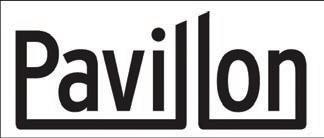
Mill Spring, NC
Contact: Sandy Jenkins (800) 392-4808
sandyj@pavillon.org www.pavillon.org
PenfieldAddiction Ministries

Union Point, GA
Contact: Admissions
(706) 453-7929
admissions@penfieldrecovery.com
www.penfieldrecovery.com
Potomac Pathways runs premium intensive outpatient programs for teens and young adults in the Washington, DC area. The best in evidencebased treatment, with experiential elements, in a recovery community environment. We also run a unique DBT intensive outpatient program for teens and young adults with severe emotional dysregulation and substance abuse. Unique, supportive, sophisticated programs for young people. Most insurance accepted.

Project Turnabout
Granite Falls, MN
Contact: Mark Sannerud (800) 862-1453
msannerud@projectturnabout.org www.projectturnabout.org
Recovering Champions
Falmouth, MA
Contact: Julie Dileo (844) 888-5391
info@recoveringchampions.com www.recoveringchampions.com


Recovery Centers of America
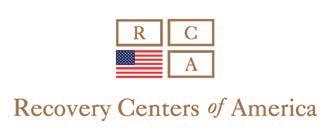
King of Prussia, PA (800) RECOVERY
RCAContactCenter@recoverycoa.com
www.recoverycentersofamerica.com
Recovery Centers of America provides patients with evidence based treatment programs for addiction to opioids, heroin, alcohol, and other drugs, and co-occurring behavioral health disorders such as anxiety, trauma, depression, and bipolar disorder. With facilities throughout New England, New Jersey, Pennsylvania, and Maryland, RCA offers a full continuum of care delivered by licensed therapists, nurses, physicians, and other professionals. Treatment services include detoxification, residential treatment, partial hospitalization, outpatient services, ongoing supports, and family services.
TREATMENT CENTER DIRECTORY WWW.ADDICTIONPRO.COM 45
ADOLESCENT SERVICES
Recovery Unplugged—Addiction Treatment Through the Power of Music
Locations in FL, TX, DC
Contact: Admissions (800) 55-REHAB
support@recoveryunplugged.com www.recoveryunplugged.com
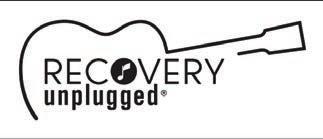
Retreat Premier Addiction Treatment Centers
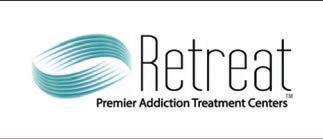
Locations in PA & FL (855) 859-8810
www.RetreatAddictionCenters.com
Retreat Premier Addiction Treatment Centers offers addiction services from medically monitored detox to outpatient rehabilitation, providing a full continuum of care. We work with most commercial insurers, offer 24/7 admissions and complimentary transportation. We have locations in Lancaster County, PA and Palm Beach County, FL. At Retreat we pride ourselves in providing a compassionate and spiritual environment for those struggling with addiction in a secure and comfortable setting with dedicated and caring staff.
Caron Treatment Centers

Wernersville, PA (800) 678-2332
admissions@caron.org
www.caron.org
Caron’s program for teens diagnoses and treats core issues, including mental health disorders and substance abuse. Assessments are the first step Caron takes in getting to know a teen and assemble a treatment plan that will get to the heart of the issues they are facing. Our gender-specific programs help teens develop coping skills necessary for long-term recovery. On site schooling is available to keep teens on their academic track while in treatment.
The Menninger Clinic
Houston, TX
Contact: Admissions Department (800) 351-9058
bscott@menninger.edu www.menningerclinic.com
Potomac Pathways
Cabin John, MD
Contact: Brooke Brody, LCSW-C, LCADC (301) 987-7284
info@potomacpathways.org www.potomacpathways.org
Southern Rockies Addiction Treatment Services
Durango, CO
Contact: Admissions (970) 828-3030
info@srats.net
www.srats.net
We are an opioid treatment program providing outpatient medication-assisted treatment (methadone and buprenorphine) by a physician board certified in addiction medicine, along with counseling, for opioid abuse and dependency. Additionally, we offer medically supervised treatment for alcohol addiction.
Our goal is to empower patients in making informed choices to assist them in recovery from opioid and alcohol addiction while honoring individual dignity and respect.
We also provide 24/7 support at our residential treatment facility, Durango Recovery Center. CARF accredited.

Potomac Pathways runs premium intensive outpatient programs for teens and young adults in the Washington, DC area. The best in evidencebased treatment, with experiential elements, in a recovery community environment. We also run a unique DBT intensive outpatient program for teens and young adults with severe emotional dysregulation and substance abuse. Unique, supportive, sophisticated programs for young people. Most insurance accepted.

Turnbridge
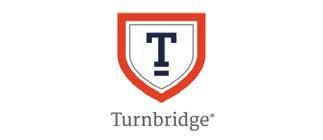
New Haven, CT
Contact: Gordon Dickler (203) 937-2309, ext. 112 gdickler@tpaddictiontreatment.com www.tpaddictiontreatment.com
Turnbridge is the preeminent long-term addiction treatment program for young adults and teens. Over its 15 year history, Turnbridge has helped thousands of young men and young women learn the skills needed to live full, passionate, and purposeful lives. To learn more about Turnbridge and its renowned programs and treatment philosophy, please call 877-581-1793.
CHRONIC PAIN AND ADDICTION RECOVERY
A Healing Place - The Estates
Camarillo, CA
Contact: John Stenzel, CEO (818) 618-0404
john@ahealingplacetheestates.com
www.ahealingplacetheestates.com
A Healing Place–The Estates is a Triple Diagnosis transformational treatment program that incorporates a multidisciplinary system to address the unique challenges of individuals suffering with chronic pain, psychological conditions, and addictive behaviors, including related co-occurring trauma and PTSD. Individualized treatment plans go beyond our proprietary Addiction-Free Pain Management® PLUS System, which is based on more than 75 years of CBT research for treating addictive behaviors, as well as many evidence-based chronic pain management treatment protocols.

TREATMENT CENTER DIRECTORY 46 FALL 2017 ADDICTION PROFESSIONAL WWW.ADDICTIONPRO.COM
Caron Treatment Centers

Wernersville, PA
(800) 678-2332
admissions@caron.org
www.caron.org
Chronic pain is defined as pain lasting longer than six months. It can affect brain function, emotional health and quality of life. Caron offers programs to help chronic pain sufferers reclaim their quality of life through services such as detoxification, individual, group and psychological counseling, massage, acupuncture and meditation. Our goal at Caron is to offer you pain recovery, not pain management.
Retreat Premier Addiction Treatment Centers

Locations in PA & FL
(855) 859-8810
www.RetreatAddictionCenters.com
Retreat Premier Addiction Treatment Centers offers addiction services from medically monitored detox to outpatient rehabilitation, providing a full continuum of care. We work with most commercial insurers, offer 24/7 admissions and complimentary transportation. We have locations in Lancaster County, PA and Palm Beach County, FL. At Retreat we pride ourselves in providing a compassionate and spiritual environment for those struggling with addiction in a secure and comfortable setting with dedicated and caring staff.
CO-OCCURRING DISORDERS SERVICES
Black Bear Lodge

Sautee, GA
Contact: Adam Marion (770) 557-3566
admissions@frnmail.com
www.blackbearrehab.com
Black Bear Lodge offers a transformative recovery experience amid the beauty of serene forest foothills. We provide integrated treatment for addiction and mental health conditions through a time-tested treatment model that includes customized plans, psychoeducational groups, DBT skills, CBT, Motivational Interviewing, family therapy, and holistic options, such as adventure therapy, creative arts and yoga. Our residential program is structured to address a person’s physical, spiritual, mental and emotional needs, creating the foundation for lifelong recovery.
Recovering Champions
Falmouth, MA
Contact: Julie Dileo
(844) 888-5391
info@recoveringchampions.com

www.recoveringchampions.com

Amity Circle Tree Ranch
Tucson, AZ
Contact: Karla Butterbaugh (800) 381-3318
kbutterbaugh@amityfdn.org
www.circletreeranch.org
Our effective treatment approach is proven for individuals with a variety of needs which allows them to heal core traumas, identify strengths, improve self-esteem, learn life skills, and address the under-lying issues that contribute to their addiction and self-destructive behaviors.
At Circle Tree Ranch, we teach the importance of community and development of authentic relationships as a key to recovery. Our culturally competent curriculum teaches and empowers our students to succeed in today’s world. Circle Tree Ranch is CARF Accredited.
BoardPrep Recovery Center


Tampa, FL
Contact: Liz Harden, LMHC, CAP, CCJAP (813) 600-7929
admissions@boardpreprecovery.com
www.boardpreprecovery.com
Leading-edge addiction and mental health rehab in beautiful South Tampa. BoardPrep experts specialize in the treatment of serious addiction and complex dual disorders. Based on the successful physician health recovery model, BoardPrep improves long-term results through enhanced structure, coaching and ongoing recovery monitoring. Services include inpatient, outpatient, licensed detox, interventions and court services. Rehab at BoardPrep is rooted in the 12-step model, with a robust family program and available extended care options.
TREATMENT CENTER DIRECTORY WWW.ADDICTIONPRO.COM 47
County, PA and Palm Beach County, FL. At Retreat we pride ourselves in providing a compassionate and spiritual environment for those struggling with addiction in a secure and comfortable setting with dedicated and caring staff.
The Canyon at Peace Park
Malibu, CA
Contact: Kathleen Bigsby (877) 345-3396
admissions@frnmail.com
www.thecanyonmalibu.com

The Canyon at Peace Park is a sanctuary of healing that offers evidence-based integrated treatment for addiction and mental health conditions. Situated in a serene 120-acre reserve in the hills of Malibu, California, The Canyon at Peace Park has long been known as a center of spirituality, healing and renewal, combining holistic therapies and innovative approaches for a distinguished treatment experience in a residential setting.
Michael's House
Palm Springs, CA
Contact: Craig MacLaughlin (855) 894-3704
admissions@frnmail.com
www.michaelshouse.com
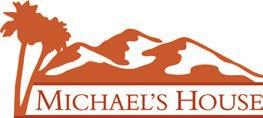
Michael’s House is a refuge of healing in sunny Palm Springs, California, providing evidencebased integrated treatment for addiction and mental health conditions. We provide comprehensive care for the mind, body and spirit that includes life skills development, DBT skills, CBT, Motivational Interviewing, relapse prevention planning, genderspecific programs, holistic options and a range of adventure and recreational activities. Michael’s House is also LGBT-friendly, with an LGBT track comprised of educational and process groups.
Skywood Recovery

Augusta, MI
Contact: Lori Ryland (855) 808-6209
admissions@fnmail.com
www.skywoodrecovery.com
Under the wide open Augusta, Michigan skies, hope can be found on a pastoral campus situated among flourishing wildlife and tranquil greenery. We specialize in the integrated treatment of cooccurring conditions, using DBT, CBT, medication management, life skills training and holistic options such as art, equine and adventure therapies. We provide the tools patients need to excel in relationships, resolve trauma and overcome life’s obstacles. At Skywood, we help people rediscover their authentic selves in recovery.
Living at Reflection
Novato, CA
Contact: Will Fluke (877) 781-5602
Will@Reflections.Rehab
www.Reflections.Rehab

Reflections is a premier, upscale dual-diagnosis residential facility treating 6 clients maximum. We provide intensive psychological care by doctorate level clinicians who specialize in co-occurring disorders and relapse prevention.
Treating personality disorders, depression, anxiety, grief, trauma bipolar, PTSD, eating disorders, chronic pain and medication management. Equine, Art, and Music therapy, DBT, CBT treatment modalities. LGBTQ track.
Private rooms, cell phones/electronics are welcome. On-site gym, pool, hot tub. Detox, Residential, PHP, IOP available.
The Menninger Clinic
Houston, TX
Contact: Admissions Department (800) 351-9058
bscott@menninger.edu
www.menningerclinic.com
The Oaks at La Paloma

Memphis, TN
Contact: Jeremy Pitzer (877) 345-3205
admissions@frnmail.com
www.theoakstreatment.com
The Oaks at La Paloma is a safe haven of recovery in the heart of historic midtown Memphis, offering evidence-based integrated treatment for addiction and mental health issues. We provide individualized plans, holistic options such as music therapy, and comprehensive care with a special focus on trauma resolution through therapies such as EMDR, Acceptance and Commitment Therapy and Cognitive Processing Therapy. Our full-service residential treatment center also offers medically managed detox, intervention coordination and an active alumni program.
COUNSELING SERVICES
Retreat Premier Addiction Treatment Centers


Locations in PA & FL (855) 859-8810
www.RetreatAddictionCenters.com
Retreat Premier Addiction Treatment Centers offers addiction services from medically monitored detox to outpatient rehabilitation, providing a full continuum of care. We work with most commercial insurers, offer 24/7 admissions and complimentary transportation. We have locations in Lancaster County, PA and Palm Beach County, FL. At Retreat we pride ourselves in providing a compassionate and spiritual environment for those struggling with addiction in a secure and comfortable setting with dedicated and caring staff.
Retreat
Premier Addiction
Treatment
Centers Locations in PA & FL (855) 859-8810
www.RetreatAddictionCenters.com
Retreat Premier Addiction Treatment Centers offers addiction services from medically monitored detox to outpatient rehabilitation, providing a full continuum of care. We work with most commercial insurers, offer 24/7 admissions and complimentary transportation. We have locations in Lancaster
TREATMENT
48 FALL 2017 ADDICTION PROFESSIONAL WWW.ADDICTIONPRO.COM
CENTER DIRECTORY
CenterPointe Hospital
St. Charles, MO
(800) 345-5407
www.centerpointehospital.com

CenterPointe Hospital, located in the beautiful and historic St. Charles, Missouri, provides addiction and mental health treatment for adults at The Changing Pointe Residential Treatment Center. Our experienced physicians and staff provide treatment for complex conditions that accompany addiction such as trauma, depression, anxiety or bipolar disorder. Services include detox, 4-week residential treatment, outpatient programs, medication-assisted treatment, family services and aftercare. The path to healing begins here. This is your changing point.
Summer House Detox
Miami, FL
Contact: Rootie Cook (305) 892-8440
detoxnow@aol.com
www.summerhousedetoxcenter.com

Summer House’s mission is to provide a superior substance abuse detox facility treating adults suffering from the disease of addiction/alcoholism. We provide this service without regard to race, spiritual beliefs, gender, or sexual orientation in an environment that incorporates state of the art medical and psychological practices. It is our commitment to treat clients with compassion while promoting dignity and self-esteem.
Living at Reflection
Novato, CA
Contact: Will Fluke (877) 781-5602
Will@Reflections.Rehab
www.Reflections.Rehab

Reflections is a premier, upscale dual-diagnosis residential facility treating 6 clients maximum. We provide intensive psychological care by doctorate level clinicians who specialize in co-occurring disorders and relapse prevention.
Treating personality disorders, depression, anxiety, grief, trauma bipolar, PTSD, eating disorders, chronic pain and medication management. Equine, Art, and Music therapy, DBT, CBT treatment modalities. LGBTQ track.
Private rooms, cell phones/electronics are welcome. On-site gym, pool, hot tub. Detox, Residential, PHP, IOP available.
DUI COUNSELING CENTER
EATING DISORDER SERVICES
Newport Integrated Behavioral Healthcare, Inc.


Decatur, GA
Contact: Dr. Joy Moseri, DBA, LPC, CACII
(404) 289-8223
jmoseri@nibhinc.com
www.nibhinc.com
Our “mission” is to provide Integrated Behavioral Healthcare, for adults, children and adolescents with complex psychiatric, substance abuse, and behavioral problems that is accessible, effective, safe, efficient, and appropriate to the needs of the consumer and their families. The variety of treatment provided are rooted and grounded in best practices; with the ability to manage change. We are committed to providing quality services to our consumers and their families with respect, dignity, compassion, and genuine caring.Treatment is better than Incarceration.
Aloria Health

Milwaukee, WI
(844) 801-9529
admissions@aloriaheatlh.com
www.aloriahealth.com
Using an approach that includes more than treatment, Aloria Health gives people the tools to become their best selves. Aloria provides care for individuals with food and body related issues as well as all eating disorder diagnoses including anorexia, binge eating disorder, body dysmorphia, bulimia, compulsive overeating, orthorexia, and co-occurring issues. Aloria Health is accepting admissions for residential, partial hospitalization, and intensive outpatient care.
For more information or a free assessment contact 844-801-9529, admissions@aloriahealth. com, or aloriahealth.com
Milestones in Recovery

Cooper City, FL
Contact: Jay Held (855) 678-0101
cgeller@milestonesprogram.org
www.milestonesprogram.org
Remuda Ranch at The Meadows

Wickenburg, AZ
(866) 390-5100
remuda_intake@remudaranch.com
www.remudaranch.com
GAMBLING TREATMENT SERVICES
Project Turnabout
Granite Falls, MN
Contact: Mark Sannerud
(800) 862-1453
msannerud@projectturnabout.org
www.projectturnabout.org
DETOX SERVICES
TREATMENT CENTER DIRECTORY WWW.ADDICTIONPRO.COM 49
HOLISTIC DRUG & ALCOHOL SERVICES
Amity Circle Tree Ranch
Tucson, AZ
Contact: Karla Butterbaugh (800) 381-3318
kbutterbaugh@amityfdn.org
www.circletreeranch.org
Our effective treatment approach is proven for individuals with a variety of needs which allows them to heal core traumas, identify strengths, improve self-esteem, learn life skills, and address the under-lying issues that contribute to their addiction and self-destructive behaviors.
At Circle Tree Ranch, we teach the importance of community and development of authentic relationships as a key to recovery. Our culturally competent curriculum teaches and empowers our students to succeed in today’s world. Circle Tree Ranch is CARF Accredited.
INPATIENT SERVICES
MENTAL HEALTH SERVICES
Genesis Recovery, Inc.
La Mesa, CA
Contact: Genesis Recovery Admissions (619) 797-7319

info@genesisrecovery.com www.genesisrecovery.com
At Genesis Recovery we utilize the most comprehensive and effective models for treating and supporting individuals who are suffering from addictive disorders. We provide individualized services specifically designed to meet the resident wherever they may be in their relationship with drugs and/or alcohol. For more information, visit www.genesisrecovery.com


The Menninger Clinic
Houston, TX
Contact: Admissions Department (800) 351-9058 bscott@menninger.edu www.menningerclinic.com
MEDICATION-ASSISTED TREATMENT
The Clearing
Friday Harbor, WA
Contact: Joe Koelzer (425) 366-8469
www.theclearingnw.com
The Clearing is an innovative residential treatment program focused on addressing the underlying core issues which fuel addiction, substance abuse, depression, anxiety, and other mental health conditions. Our program is dual diagnosis and an alternative to the 12-Steps. Participants join a small group of 10 for an uninterrupted, immersive, 28-day curriculum-based program in a serene, secluded recovery center located on San Juan Island, in the Puget Sound of Washington State.
The Clearing
Friday Harbor, WA
Contact: Joe Koelzer (425) 366-8469
www.theclearingnw.com


The Clearing is an innovative residential treatment program focused on addressing the underlying core issues which fuel addiction, substance abuse, depression, anxiety, and other mental health conditions. Our program is dual diagnosis and an alternative to the 12-Steps. Participants join a small group of 10 for an uninterrupted, immersive, 28-day curriculum-based program in a serene, secluded recovery center located on San Juan Island, in the Puget Sound of Washington State.
Newport Integrated Behavioral Healthcare, Inc.

Decatur, GA
Contact: Dr. Joy Moseri, DBA, LPC, CACII (404) 289-8223 jmoseri@nibhinc.com www.nibhinc.com
Our “mission” is to provide Integrated Behavioral Healthcare, for adults, children and adolescents with complex psychiatric, substance abuse, and behavioral problems that is accessible, effective, safe, efficient, and appropriate to the needs of the consumer and their families. The variety of treatment provided are rooted and grounded in best practices; with the ability to manage change. We are committed to providing quality services to our consumers and their families with respect, dignity, compassion, and genuine caring.Treatment is better than Incarceration.
Living at Reflection
Novato, CA
Contact: Will Fluke (877) 781-5602
Will@Reflections.Rehab
www.Reflections.Rehab

Reflections is a premier, upscale dual-diagnosis residential facility treating 6 clients maximum. We provide intensive psychological care by doctorate level clinicians who specialize in co-occurring disorders and relapse prevention.
Treating personality disorders, depression, anxiety, grief, trauma bipolar, PTSD, eating disorders, chronic pain and medication management. Equine, Art, and Music therapy, DBT, CBT treatment modalities. LGBTQ track.
Private rooms, cell phones/electronics are welcome. On-site gym, pool, hot tub. Detox, Residential, PHP, IOP available.
TREATMENT CENTER DIRECTORY 50 FALL 2017 ADDICTION PROFESSIONAL WWW.ADDICTIONPRO.COM
Loma Linda University Behavioral Medicine Center Redlands,
CA
(909) 558-9275
bmc-info@llu.edu
www.llubmc.org
Loma Linda University Behavioral Medicine

Center is an 89-bed, faith-based psychiatric hospital. We have been providing excellent care by compassionate and caring staff for more than 25 years. Our services include mental health, eating disorders, substance use disorder, chronic pain and medication dependency for youth, adults and seniors. We offer both inpatient and outpatient programs. For more information, call 909-5589275 or visit www.llubmc.org.
The Retreat at Sheppard Pratt Baltimore, MD
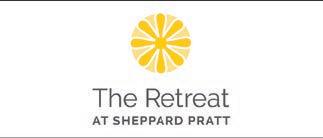
Contact: Kelly Seckman, LCSW-C (410) 938-3891
retreat@sheppardpratt.org retreat.sheppardpratt.org
The Retreat at Sheppard Pratt provides highly personalized, expert care in a healing environment to treat depression, anxiety, mood, personality, and substance use disorders, among others. We specialize in treating young adults having a difficult time transitioning to adulthood, professionals at a crossroads, and adults managing life stressors. As part of the Sheppard Pratt Health System, residents at The Retreat have access to a full range of resources and specialized expertise during their all-inclusive, three-week stay. Set in the lush green, rolling countryside of Baltimore County, MD, The Retreat is a source of hope, and as a private-pay program, has the freedom, the flexibility, and the focus to turn lives around.
OUTPATIENT SERVICES
The Canyon at Santa Monica Santa Monica,
CA
Contact: Carly Bachrach (424) 465-5066
admissions@frnmail.com
www.canyonsantamonica.com

The Canyon at Santa Monica is a modern healing sanctuary in the heart of West LA, just two blocks from Santa Monica. We offer integrated treatment for addiction and mental health conditions, providing effective, holistic therapy for long-term recovery. Each patient is matched with a primary therapist with expertise in his or her specific area. Patients can participate in individual and group therapy sessions and life skills classes integrated with traditional and Eastern 12-Step principles.
New Vista Behavioral Health
Costa Mesa, CA
Contact: Admissions
(844) 578-0689
admissions@newvistbh.com
Newport Integrated Behavioral Healthcare, Inc.


Decatur, GA
Contact: Dr. Joy Moseri, DBA, LPC, CACII (404) 289-8223
jmoseri@nibhinc.com www.nibhinc.com
Our “mission” is to provide Integrated Behavioral Healthcare, for adults, children and adolescents with complex psychiatric, substance abuse, and behavioral problems that is accessible, effective, safe, efficient, and appropriate to the needs of the consumer and their families. The variety of treatment provided are rooted and grounded in best practices; with the ability to manage change. We are committed to providing quality services to our consumers and their families with respect, dignity, compassion, and genuine caring.Treatment is better than Incarceration.
Aware Recovery Care


Locations in Connecticut and New Hampshire
Contact: Matthew Eacott (203) 779-5799
meacott@awarerecoverycare.com
www.awarerecoverycare.com
Foundations at Atlanta at Midtown
Atlanta, GA
Contact: Anne Marie Dine (404) 270-1005
admissions@frnmail.com
www.foundationsatlanta.com
Convenient to all three of Atlanta's major highways, Foundations Atlanta at Midtown is a premium outpatient center located in the historic Brookwood Exchange building, between Midtown and Buckhead. Our caring staff are here to provide the tools you need to achieve a balanced recovery lifestyle, and our integrated treatment program is research-proven and designed to meet your specific needs. We offer flexible morning and evening options that include education and a variety of supporting services.
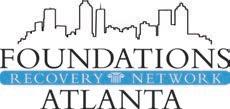
TREATMENT CENTER DIRECTORY WWW.ADDICTIONPRO.COM 51
Foundations Atlanta at Roswell Roswell, GA
Contact: Laura Pugsley (770) 557-3547
admissions@frnmail.com
www.foundationsatlanta.com

Located just outside the hustle and bustle of downtown Atlanta, Foundations Atlanta at Roswell offers patients the chance to rediscover life through effective therapies and holistic and recreational activities. We provide integrated outpatient treatment for addiction and mental health conditions through a number of services, including individual and group therapy sessions as well as psychoeducational, specialty and process groups, including DBT skills. Holistic offerings from Tai Chi and yoga to massage and Pilates round out the treatment process.
Foundations Detroit
Royal Oak, MI
Contact: Steve Wiland (855) 808-6209
admissions@frnmail.com
www.foundationsdetroit.com

Foundations Detroit exists to serve the unique addiction and mental health needs of those in this historic city and around the country. We provide confidential assessments, physician-directed medication management, a diverse schedule of therapies, integrated educational sessions and holistic approaches. Our full continuum of care helps individuals move forward in health and wellness. Patients leave empowered after rediscovering the people they were always meant to be.
Foundations Memphis

Memphis, TN
Contact: Greg Hughes (901) 505-6519
admissions@frnmail.com
www.foundationsmemphis.com
Foundations Memphis offers integrated treatment for addiction as well as co-occurring and primary mental health conditions, such as depression, anxiety, bipolar disorder and trauma. We support individuals who are seeking treatment for the first time as well as those stepping down from residential treatment. Our clinical staff works to determine the most appropriate treatment concentration to fit each patient's needs. Our team of professionals meets patients where they are with acceptance and without judgment.
Foundations Chicago Chicago, IL
Contact: Ashley Danner (855) 808-6209
admissions@frnmail.com
www.foundationschicago.com

Foundations Chicago provides integrated treatment in a convenient Midwest location. Targeted specifically to individuals with co-occurring addiction and mental health concerns, our program is based on a continuum of individual and group therapies, educational sessions and holistic approaches as we walk patients through a stagesof-change approach. Optional offerings allow patients to customize their care to address their unique needs. Throughout the process, patients develop the tools necessary to reach their personal recovery goals.
Foundations Los Angeles at Encino
Encino, CA
Contact: Carly Bachrach (855) 808-6209
admissions@frnmail.com
www.foundationslosangeles.com

Foundations Los Angeles at Encino offers comprehensive outpatient care that caters to recoveryseeking individuals across the nation. We provide integrated treatment for those with co-occurring addiction and mental health concerns. Our program is based on a continuum of individual and group therapies, educational sessions and holistic approaches. Specialty groups provide therapy for professionals, couples and families, while options like anger management and life skills training allow patients to customize their care.
Foundations Nashville
Nashville, TN
Contact: Amanda Elkin (615) 370-6880
admissions@frnmail.com
www.foundationsnashville.com
Foundations Nashville is a Joint Commissionaccredited outpatient center providing integrated treatment for addiction and mental health issues. Using individualized plans and Motivational Interviewing, we help patients set and achieve their own recovery goals. Our flexible morning and evening programming includes life skills development, DBT skills, psychoeducational and process groups, a family program, and individual and group therapy sessions.

TREATMENT CENTER DIRECTORY 52 FALL 2017 ADDICTION PROFESSIONAL WWW.ADDICTIONPRO.COM
recovery community environment. We also run a unique DBT intensive outpatient program for teens and young adults with severe emotional dysregulation and substance abuse. Unique, supportive, sophisticated programs for young people. Most insurance accepted.
Foundations San Diego
San Diego, CA
Contact: Melissa Stevenson (619) 321-1575
admissions@frnmail.com
www.foundationssandiego.com

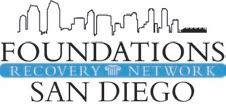
Foundations San Diego is a distinctive outpatient center located in the hub of the Hillcrest area in sunny San Diego. We offer integrated treatment and recovery support for the unique needs of individuals with co-occurring addiction and mental health concerns. Serving patients both locally and nationwide, we provide a continuum of individual and group therapies, integrated educational sessions, case management, medication management and holistic approaches.
Michael's House Outpatient Center
Palm Springs, CA
Contact: Paul d'Entremont (760) 459-6136
admissions@frnmail.com
www.michaelshouseoutpatient.com

Michael's House Outpatient Center is a place of healing and hope located in Palm Springs, California. We provide patients with the recovery tools, peer support and professional guidance that they need to live full, healthy lives. Patients can attend group and individual therapy sessions, participate in holistic and recreational activities, and experience a compassionate environment where substance use and mental health issues are addressed concurrently.
RECO Intensive Delray Beach, FL (561) 808-7986
info@recointensive.com
www.recointensive.com
RECO Intensive Outpatient Program's mission serves to restore light and color to the lives of those suffering from addiction. A widely accredited program, we work with clients and their families to foster a renewed capacity for healing, to rebuild relationships, and to create a blueprint for a better life.
Foundations San Francisco
San Francisco, CA
Contact: Christine Pappas (415) 293-1680
admissions@frnmail.com
www.foundationssanfrancisco.com
Located in the heart of the Embarcadero district, Foundations San Francisco offers evidence-based integrated outpatient treatment for addiction and mental health conditions. We focus on meeting the needs of each patient through Motivational Interviewing, comprehensive care, individualized plans and flexible morning and evening programming. We offer somatic experiencing, a spirituality program, holistic services such as yoga, meditation, massage and acupuncture, as well as educational groups on DBT skills, relapse prevention and stress management.
Newport Integrated Behavioral Healthcare, Inc.

Decatur, GA
Contact: Dr. Joy Moseri, DBA, LPC, CACII (404) 289-8223
jmoseri@nibhinc.com
www.nibhinc.com
Our “mission” is to provide Integrated Behavioral Healthcare, for adults, children and adolescents with complex psychiatric, substance abuse, and behavioral problems that is accessible, effective, safe, efficient, and appropriate to the needs of the consumer and their families. The variety of treatment provided are rooted and grounded in best practices; with the ability to manage change. We are committed to providing quality services to our consumers and their families with respect, dignity, compassion, and genuine caring.Treatment is better than Incarceration.
Recovering Champions
Falmouth, MA
Contact: Julie Dileo (844) 888-5391
info@recoveringchampions.com www.recoveringchampions.com



The Meadows Outpatient Center
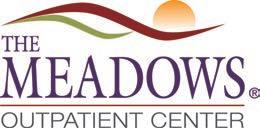
Scottsdale, AZ
(800) 244-4949
intake@themeadows.com
www.themeadowsiop.com
Potomac Pathways
Cabin John, MD
Contact: Brooke Brody, LCSW-C, LCADC
(301) 987-7284
info@potomacpathways.org
www.potomacpathways.org
Potomac Pathways runs premium intensive outpatient programs for teens and young adults in the Washington, DC area. The best in evidencebased treatment, with experiential elements, in a

TREATMENT CENTER DIRECTORY WWW.ADDICTIONPRO.COM 53
Retreat Premier Addiction Treatment Centers

Locations in PA & FL (855) 859-8810
www.RetreatAddictionCenters.com
Retreat Premier Addiction Treatment Centers offers addiction services from medically monitored detox to outpatient rehabilitation, providing a full continuum of care. We work with most commercial insurers, offer 24/7 admissions and complimentary transportation. We have locations in Lancaster County, PA and Palm Beach County, FL. At Retreat we pride ourselves in providing a compassionate and spiritual environment for those struggling with addiction in a secure and comfortable setting with dedicated and caring staff.
PARTIAL-HOSPITALIZATION SERVICES
Newport Integrated Behavioral Healthcare, Inc.

Decatur, GA
Contact: Dr. Joy Moseri, DBA, LPC, CACII
(404) 289-8223
jmoseri@nibhinc.com
www.nibhinc.com
Our “mission” is to provide Integrated Behavioral Healthcare, for adults, children and adolescents with complex psychiatric, substance abuse, and behavioral problems that is accessible, effective, safe, efficient, and appropriate to the needs of the consumer and their families. The variety of treatment provided are rooted and grounded in best practices; with the ability to manage change. We are committed to providing quality services to our consumers and their families with respect, dignity, compassion, and genuine caring.Treatment is better than Incarceration.
PROCESS ADDICTIONS
Caron Treatment Centers
Wernersville, PA (800) 678-2332
admissions@caron.org
www.caron.org
Most addicts face multiple addictions. Treating multiple addictions, including drugs, alcohol, gambling, sex, eating, work or the internet is the only way to prevent the progression of addiction interaction disorder. Caron focuses on treating multiple addictions through screenings, assessments, education and therapy for both the individual , as well as the family.
RELAPSE PREVENTION SERVICES
RELIGIOUS/SPIRITUAL-BASED SERVICES
Genesis Recovery, Inc.
La Mesa, CA
Contact: Genesis Recovery Admissions (619) 797-7319

info@genesisrecovery.com
www.genesisrecovery.com
At Genesis Recovery we utilize the most comprehensive and effective models for treating and supporting individuals who are suffering from addictive disorders. We provide individualized services specifically designed to meet the resident wherever they may be in their relationship with drugs and/or alcohol. For more information, visit www.genesisrecovery.com
RESIDENTIAL SERVICES
Caron Treatment Centers


Wernersville, PA (800) 678-2332
admissions@caron.org
www.caron.org
Because chemical dependency is a chronic disease, the potential for relapse exists. A pioneer in relapse treatment, Caron offers specialized residential relapse treatment—not just a relapse “track”. We aim to understand an individual’s relapse cycle. We identify and address the problems that cause relapse. Our program offers specialized groups that focus on: family of origin issues, beliefs about the nature of addiction, severe post-acute withdrawal, chronic pain management and cooccurring mental health.
Amity Circle Tree Ranch
Tucson, AZ
Contact: Karla Butterbaugh (800) 381-3318
kbutterbaugh@amityfdn.org
www.circletreeranch.org
Our effective treatment approach is proven for individuals with a variety of needs which allows them to heal core traumas, identify strengths, improve self-esteem, learn life skills, and address the under-lying issues that contribute to their addiction and self-destructive behaviors.
At Circle Tree Ranch, we teach the importance of community and development of authentic relationships as a key to recovery. Our culturally competent curriculum teaches and empowers our students to succeed in today’s world. Circle Tree Ranch is CARF Accredited.
TREATMENT CENTER DIRECTORY 54 FALL 2017 ADDICTION PROFESSIONAL WWW.ADDICTIONPRO.COM
Treating personality disorders, depression, anxiety, grief, trauma bipolar, PTSD, eating disorders, chronic pain and medication management. Equine, Art, and Music therapy, DBT, CBT treatment modalities. LGBTQ track.
Private rooms, cell phones/electronics are welcome. On-site gym, pool, hot tub. Detox, Residential, PHP, IOP available.
The Aviary Recovery Center
St. Louis, MO
Contact: Rick Stein (314) 657-7858
Rjstein@aviaryrc.com
AviaryRecoveryCenter.com

English Mountain Recovery Sevierviller, TN
Contact: Ana Garcia (865) 774-9797
agarcia-smith@englishmountain.com www.englishmountain.com

Mountain Laurel Recovery Center Westfield, PA

Contact: Admissions
(814) 367-2003 admissions@mlrcenter.com www.mountainlaurelrecoverycenter.com
Canyon Vista Recovery Center Mesa, AZ
Contact: Brenda Young (480) 464-5764
byoung@canyonvista.com www.canyonvista.com
Great Oaks Recovery Center
Egypt, TX
Contact: Patsy Riley (979) 677-1000
priley@greatoaksrecovery.com www.greatoaksrecovery.com

Durango Recovery Center
Durango, CO
Contact: Admissions (800) 913-7317
info@durangorecoverycenter.com www.durangorecoverycenter.com
We are a progressive and holistic, non 12-step residential treatment facility for adult males struggling with drug addiction in beautiful Durango, Colorado. We utilize evidence-based medical, therapeutic and experiential treatment strategies to treat opioid addiction. We provide a path to wellness focused on empowerment, the cultivation of personal passions and the discovery of individual purpose.
Our services include medication-assisted treatment, transcranial magnetic stimulation, innovative behavioral therapies, experiential activities and nutritional education. Our outpatient treatment program is Southern Rockies Addiction Treatment Services.
John Volken Academy
Surrey, BC (604) 592-3001
info@volken.org www.volken.org

The Program: The John Volken Academy is a long-term residential recovery program for young men and women ages 19 to 32. Participants advance their education, receive extensive career training, develop leadership & social skills, and build strong character.
The Cost: Our not-for-profit society is funded by private charitable foundations, friends of the Academy, and supporting businesses. Therefore, except for a one-time intake fee, the program is free.
Newport Integrated Behavioral Healthcare, Inc.

Decatur, GA
Contact: Dr. Joy Moseri, DBA, LPC, CACII (404) 289-8223 jmoseri@nibhinc.com www.nibhinc.com
Our “mission” is to provide Integrated Behavioral Healthcare, for adults, children and adolescents with complex psychiatric, substance abuse, and behavioral problems that is accessible, effective, safe, efficient, and appropriate to the needs of the consumer and their families. The variety of treatment provided are rooted and grounded in best practices; with the ability to manage change. We are committed to providing quality services to our consumers and their families with respect, dignity, compassion, and genuine caring.Treatment is better than Incarceration.
Living at Reflection
Novato, CA
Contact: Will Fluke (877) 781-5602
Will@Reflections.Rehab
www.Reflections.Rehab
Reflections is a premier, upscale dual-diagnosis residential facility treating 6 clients maximum. We provide intensive psychological care by doctorate level clinicians who specialize in co-occurring disorders and relapse prevention.

CENTER DIRECTORY WWW.ADDICTIONPRO.COM 55
TREATMENT
The Ranch at Dove Tree Lubbock, TX
Contact: Melvin Bennett (888) 722-4474
mbennett@ranchatdovetree.com www.ranchatdovetree.com
Twin Lakes Recovery Center

Athens, GA (IOP); Gainesville, GA (IOP); Monroe, GA (RTC)
Contact: Kate Butler, MS (800) 984-3828
kbutler@tlrcenter.com www.twinlakesrecoverycenter.com
St. Joseph Institute for Addiction

Port Matilda, PA
Contact: Admissions (888) 304-1275
gethelp@stjosephinstitute.com www.stjosephinstitute.com
Valley Recovery Center of California
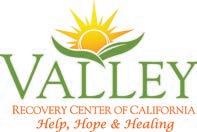


Sacramento, CA
Contact: Jason Brandel (916) 514-8500
jbrandel@valleyrecovery.com www.valleyrecovery.com
Victory Addiction Recovery Center
Lafayette, LA
Contact: Nakia Auzenne (337) 456-9111
Admissions@myvictorycenter.com
www.myvictory.com
Waypoint Recovery Center

Cameron, SC
Contact: Shari Baker (888) 870-4804
www.waypointrecoverycenter.com
Sbaker@summitbhc.com
Summit BHC Franklin, TN

Contact: Daniel Krasner (888) 727-5137
dkrasner@summitbhc.com www.summitbhc.com
Turning Point Treatment Center

Franklin, PA
Contact: Dennis McCune (814) 437-1750
dmccune@turningpointtreatment.com www.turningpointtreatment.com
Valley Recovery Center of California – Fresno Outpatient Fresno, CA
Contact: Jason Brandel (559) 721-2353
jbrandel@valleyrecovery.com www.valleyrecoveryfresno.com
Willingway
Statesboro, GA
Contact: Larraine Oakes (800) 242-9455
Loakes@willingway.com
www.willingway.com
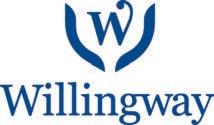
SENIOR/OLDER ADULT SERVICES
Valley Recovery Center of Nevada –Reno Outpatient Reno, NV
Contact: Valisha Davis (775) 391-0592
vdavis@valleyrecovery.com

www.valleyrecovery.com
Caron Treatment Centers

Wernersville, PA (800) 678-2332
admissions@caron.org
www.caron.org
Addiction in older adults can be difficult to detect, as warning signs often mimic common agerelated health issues. Caron’s Older Adult Program addresses the complex medical and emotional aspects of addiction and aging in a comfortable, respectful environment. Our age specific program focuses on: bereavement, denial, anger, shame and age-related loss and loneliness. We work with the patient and family to restore self-worth and build support networks that foster lasting change.
TREATMENT CENTER DIRECTORY 56 FALL 2017 ADDICTION PROFESSIONAL WWW.ADDICTIONPRO.COM
WOMEN’S SERVICES
The Meadows
Wickenburg, AZ (800) 244-4949
intake@themeadows.com
www.themeadows.com
SEXUAL ADDICTION SERVICES
Gentle Path at The Meadows Wickenburg, AZ (855) 333-6076

intake@themeadows.com
www.gentlepathmeadows.com
Prairie View Center for Sexual Health Services
Newton, KS
(800) 992-6292
publicrelations@pvi.org
www.PrairieView.org
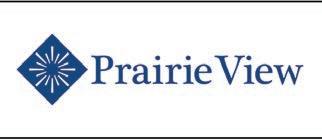
TRAUMA
The Meadows Wickenburg, AZ
(800) 244-4949
intake@themeadows.com
www.themeadows.com
Shana's House
New Canaan, CT
Contact: Pamela George (203) 434-5890

pamelag@shanashouse.org www.shanashouse.org
YOUNG ADULTS-ADDICTION/ SUBSTANCE ABUSE/MENTAL HEALTH TREATMENT

Claudia Black Young Adult Center
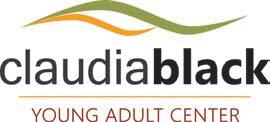
Wickenburg, AZ
(855) 333-6075
intake@themeadows.com
www.claudiablackcenter.com
Turnbridge

New Haven, CT
Contact: Gordon Dickler (203) 937-2309, ext. 112 gdickler@tpaddictiontreatment.com www.tpaddictiontreatment.com


Turnbridge is the preeminent long-term addiction treatment program for young adults and teens. Over its 15 year history, Turnbridge has helped thousands of young men and young women learn the skills needed to live full, passionate, and purposeful lives. To learn more about Turnbridge and its renowned programs and treatment philosophy, please call 877-581-1793.
Expedition Therapy/Expedition Life
Saint George, UT
Contact: Aaron Wilson (435) 899-1750
expeditiontherapyaaron@gmail.com

www.expeditiontherapy.com
Expedition Therapy/Expedition Life is a relationship-based, experiential intensive whose focus is soft skills, the acquisition of practical living tools, in-depth processing, emotional development, executive leadership, technical proficiencies related to our Expeditions. Expedition Plans are custom designed for resilient young adults, ages 18+ to 26+, who want recovery, are in recovery, considering gap year, and for others who have yet to find an intentional path in life.
FIND YOUR SOBER SELF HERE.
Willow House at The Meadows
Wickenburg, AZ (877) 472-6760
intake@themeadows.com www.willowhouseforwomen.com
Loma Linda University Behavioral Medicine Center

Redlands, CA
(909) 558-9275
bmc-info@llu.edu
www.llubmc.org
Loma Linda University Behavioral Medicine Center is an 89-bed, faith-based psychiatric hospital. We have been providing excellent care by compassionate and caring staff for more than 25 years. Our services include mental health, eating disorders, substance use disorder, chronic pain and medication dependency for youth, adults and seniors. We offer both inpatient and outpatient programs. For more information, call 909-5589275 or visit www.llubmc.org.
TREATMENT CENTER DIRECTORY WWW.ADDICTIONPRO.COM 57
The Institute is a trusted educational resource that helps address daily challenges. Our conferences convene thought leaders that share clinical best practices, discuss how to effectively and ef ciently operate a behavioral healthcare organization, and strategize solutions for addressing the opioid epidemic. Join us at an upcoming event to network with peers and take home valuable tools. Learn more about us and how we can help you at www. iadvancebehavioralhealthcare.com.
National Events

APRIL 2-5, 2018 | ATLANTA, GA
Be part of the discussion at the largest national gathering of stakeholders working together to address the opioid crisis. Prevention, treatment, law enforcement, public health, and many others exchange best practices and hear from state and federal of cials at the annual Rx Summit.
www.nationalrxdrugabusesummit.org
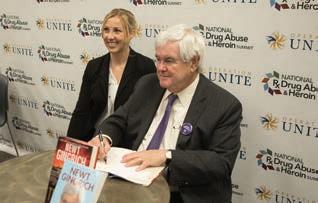
AUGUST 19-22, 2018 | DISNEYLAND, CA
CE Credits
Addiction professionals annually convene at NCAD to share what’s working: Clinicians hear from thought leaders on delivering treatment, while executives of behavioral healthcare organizations learn how to run more effective, more ef cient, and ethically minded businesses.
www.ncadcon.com
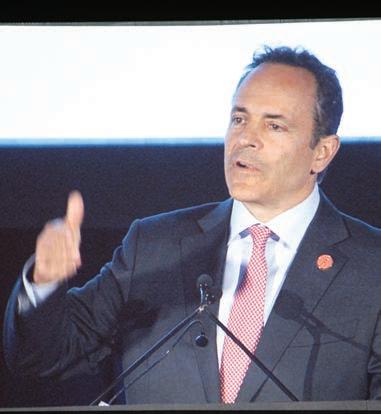

DECEMBER 4-6, 2017 | SCOTTSDALE, AZ
Senior executives of treatment centers, and those investing in these enterprises, discuss growth strategies and market dynamics at this exclusive, three-day educational and networking event.
www.treatmentcenterretreat.com
APRIL 30-MAY 2, 2018 | HILTON HEAD, SC
TCEM provides CEOs, CFOs, COOs, directors, senior marketing/business development/ admissions leaders, and other executives with the tools they need to effectively and ethically grow their services in a rapidly changing market.
www.executiveandmarketingretreat.com
Interested in attending an event? Contact Ellen Kelley at ekelley@iabhc.com or 216-373-1223.
Photography: Pete Winkel GPA
President Obama addressed Institute attendees in 2016.
Matt Bevin, Governor of Kentucky addressed Institute attendees in 2017.
CME and CE Credits
Events
National-Regional Events
CE Credits
The Summits for Clinical Excellence bring together thought leaders on cutting-edge topics in multi-day national and regional conferences. Summits on mindfulness, trauma, process addiction, and shame appeal particularly to private practice behavioral healthcare professionals. Other Summits address the national opioid crisis from a regional perspective and engage a diverse group of stakeholders. Many Summits offer treatment ethics continuing education credits.
• NEW ENGLAND November 2-3, 2017
The Opioid Crisis: Strategies for Treatment and Recovery www.iabhc.com/newengland2017

• PHOENIX, AZ February 14-16, 2018
The Opioid Crisis: The Clinician’s Role and Treatment Practices - Featuring the 2nd Annual Arizona Opioid Summit
www.arizonaopioidsummit.com
• ORANGE COUNTY, CA March 1-2, 2018
East Meets West: Multiple Perspectives on Trauma and Addictions
www.iabhc.com/orangecounty2018
• CHICAGO, IL March 7-8, 2018
The Opioid Crisis: Strategies for Treatment and Recovery www.chicagoopioidsummit.com
• CHICAGO, IL March 7-10, 2018
The National Conference on Trauma, Addictions, and Mindfulness: Where Freud Meets Buddha www.iabhc.com/chicago2018
• PITTSBURGH, PA June 25-26, 2018
The Opioid Crisis: The Clinician’s Role and Treatment Practices www.pittsburghopioidsummit.com
• ATLANTA, GA October 17-20, 2018
Brain Matters: Shame, Trauma, and Process Addictions
www.iabhc.com/atlanta2018
Local Events
CE Credits
Virtual Events
WEBINARS
The National Conference on Addiction Disorders convenes panel discussions across the country in a lunch’n’learn format. Clinicians hear about treatment practices, while those on the business side of the field share strategies for managing and marketing behavioral healthcare organizations. www.iabhc.com/local
Upcoming events:
Hear from experts on clinical, managerial, and other topics in our frequent, free-to-attend Webinars. www.iabhc.com/webinars
CE Credits
Contact Ellen Kelley at ekelley@iabhc.com or 216-373-1223.
in attending an event?
Interested
Baltimore
Raton Boston Charlotte Chicago Dallas Denver Detroit King of
Long Island Memphis Minneapolis Nashville New Orleans Orange County Phoenix Pittsburgh Providence
Lake City
Diego
Francisco
DC
Boca
Prussia
Salt
San
San
Washington,
Riverside Recovery
Tampa, Florida
BY GARY A. ENOS
n selecting the location of their new substance use treatment facility, leaders at Riverside Recovery in Tampa, Fla., wanted to be situated not far from the “real world” of a city but still in a place where they could create a sanctuary experience for patients.
The 60,000-square-foot building along the Hillsborough River, formerly housing a psychiatric hospital and then a juvenile detention center, sits little more than a fie-minute drive from downtown Tampa but offersa spa-like environment, says Ashley Janes, Riverside Recovery’s director of business development and admissions. Fishing and kayaking are among the recreational pursuits made possible because of the surrounding
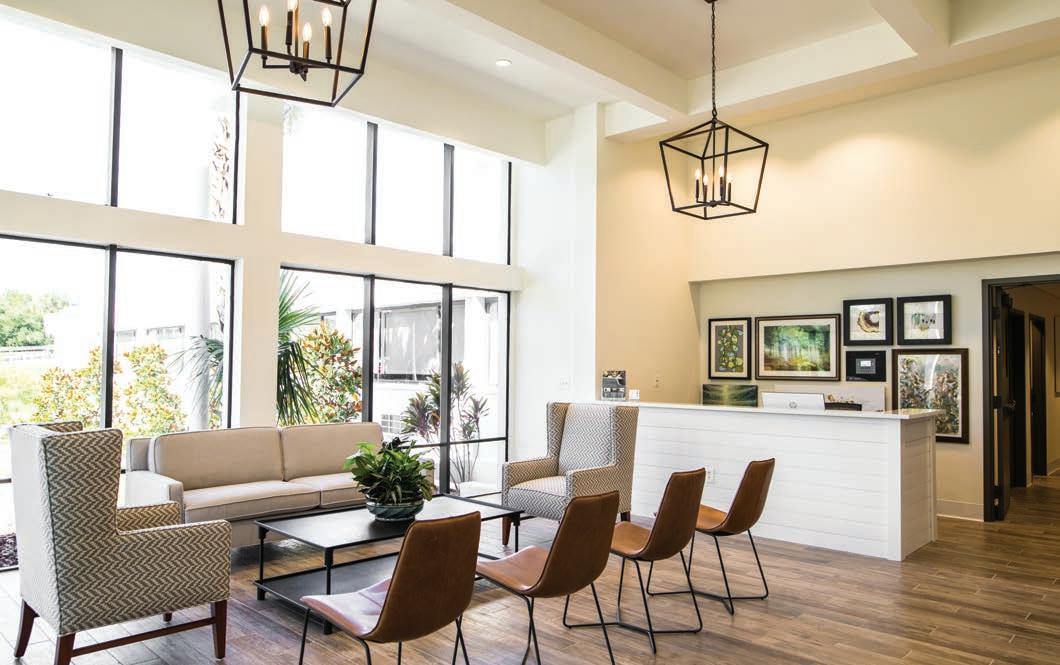
location. Thecenter houses detox, residential and intensive outpatient services that have a foundation in the 12 Steps but integrate numerous therapeutic modalities (cognitive therapy, psychodrama, etc.) and recreational therapies.
“I don’t know if the patients even know how much value is coming out of the recreational therapies,” says Janes. “I think they just look at it as fun.”
One challenge that the facility administration inherited in selecting the location involves federal restrictions governing renovations in the riverfront area. Building improvements are occurring on a phased basis, with all of Riverside Recovery’s 15 detox and 51 residential beds currently located on the upper floorof the facility. By next year, there will be a total of 135 beds, says Janes. Thetreatment center opened in the Seminole Heights section of Tampa last summer.
ENVIRONMENTS FOR RECOVERY 60 FALL 2017 ADDICTION PROFESSIONAL WWW.ADDICTIONPRO.COM
PHOTO CREDIT: RIVERSIDE RECOVERY
Residential stays in the firstfew months of operation have averaged 30 to 45 days in the facility, which is out of network for commercial insurance patients.


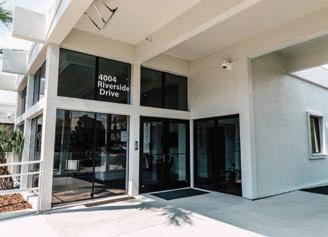





Leaders have sought to create an environment of care that is closely monitored medically but is not hospital-like. “Peaceful” comes up often in Janes’ descriptions.





“We wanted the environment to feel very relaxing and home-like,” she says. To that end, floortiles that resemble a wood surface were used, and soothing blue and gray tones predominate on the walls. All of the displayed artwork was commissioned and matches the riverfront atmosphere outside the facility, with an overall water and nature theme.

ENVIRONMENTS FOR RECOVERY WWW.ADDICTIONPRO.COM 61 8009694100info@furnitureconcepts.comwww.furnitureconcepts.com ® DURABLE . SECURE . FURNITURE CONCEPTS Group Seating, Anti-Contraband Bedroom, Dining Room, Molded-Plastic Furniture, Mattresses & Bedbug-Proof Encasements. Furniture Solutions Furniture_Concepts_2_Addiction_Professional_Ad.qxp_Furniture_Concepts_Ad 10/13/17 12:59 PM Page 1
ENVIRONMENTS FOR RECOVERY

Thefacility includes a gym, and work is being done to complete a swimming pool. A fie pit and sand volleyball court are other areas for outdoor activity, as Riverside Recovery’s founders (all in recovery) are passionate about encouraging patients to learn how to have sober fun, Janes says. A staffrecreational therapist coordinates that component of the program.
Unlike the treatment-saturated southeast corner of Florida, the Tampa area has had a relative dearth of addiction treatment facilities, making the opening of Riverside Recovery noteworthy from a business and clinical standpoint. “We have a really big opioid crisis here,” Janes says.
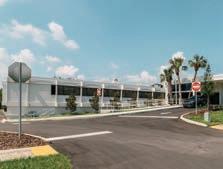



 Gary A. Enos is Editor of Addiction Professional.
Gary A. Enos is Editor of Addiction Professional.
62 FALL 2017 ADDICTION PROFESSIONAL WWW.ADDICTIONPRO.COM
Together we will overcome addiction with Connection™
The Connection™ program helps your clients build a new life in recovery. This intensive recovery support is ideal for individuals who have been in treatment multiple times, those facing a loss of a professional license, students returning to college or anyone needing additional accountability. Services include:
• Recovery coaching and case management
• Frequent phone contact with participants and their family members

• Documented recovery updates
• Random drug testing and accountability
or call
6151-2 (6/17) © 2017 Hazelden Betty Ford Foundation 6151-2_Connection_PrintAd_Fx.indd 1 6/29/17 10:05 AM ADVERTISER INDEX Pages Pages Addiction Technology Transfer Center Network. 62 Alkermes ..................................................................... CVR 4 Ashley Addiction Treatment CVR 2 Bradford Health Services. 33 Brown Consulting Group 4 Central Recovery Press .................................................... 25 Delphi Behavioral Health Group ......................................... 3 Dominion Diagnostics 21 Foundations Recovery Network 34, 35, CVR 3 Fur niture Concepts 61 Hazelden Betty Ford Foundation ..................................... 63 Illinois Institute for Addiction Recovery 9 John Volken Academy and Lift the Children 7 Manifest Treatment Consulting. 18 McLean Hospital 27 Mount Regis Center ......................................................... 28 New Vista Behavioral Health ............................................ 31 Newport Academy 19 Panacea Healthcare Services...........................................39 Recovery Centers of America...........................................13 Retreat Premier Addiction Treatment Centers............ 14, 15 Rosecrance. ..................................................................... 37 Sheppard Pratt Health System 5 Sierra Tucson 1 Sunspire Health 41 The Joint Commission. ..................................................... 38 The Meadows 29 Timberline Knolls 30 Tranquilty Woods 12 Youth Today 4
To learn more about the Connection program, visit HazeldenBettyFord.org/ConnectionProgram
866-632-8259
Triathlete goes more than an extra mile
With more than two years of sobriety, Todd Crandell helps individuals and families through Racing for Recovery initiative
odd Crandell launched Racing for Recovery with a modest initial goal of hosting an annual 5K run. Now the accomplished triathlete with more than two decades of sobriety is going a much longer distance to help individuals and families affectedby trauma and addiction.
“Our focus is on the ‘why’ someone is self-destructing,” the 50-year-old Crandell says in describing the Holland, Ohio, treatment and support organization. “We want to know why the traumas are there, why there is a lack of self-esteem.”
Racing for Recovery, based not far from Crandell’s lifetime hometown of Sylvania in northwest Ohio, has grown in the past couple of years from what started as a hub for support group meetings to a direct-services organization offeringassessment, individual and family counseling, and intensive outpatient treatment. It mainly serves the Medicaid-eligible population. Pondering what he has seen built, Crandell says, “I wish this had been available when I was using. I would have eaten this stuff u.”
SURVIVOR OF SUICIDE
Crandell’s mother died by suicide when Crandell was three years old, and two of her siblings also were suicide victims. Substance use was prominent in the family history, and Crandell says he began drinking at 13.
“Hockey as a kid was my saving grace,” he says. “It was the only thing I had confidencein.” But his substance use derailed what had looked to be a promising future in the sport. Crandell was able to earn his high school diploma despite being expelled from school at one point, and he would go on to college. But he spent 13 years in active addiction to just about anything he could get his hands on, until a third drunk-driving charge at age 26 led to his decision to take a diffeent path—notably, one he navigated without formal treatment.
Thesupport group meetings he attended early in his recovery left him wanting something more, particularly when he
BY GARY A. ENOS
observed others whose postmeeting activities consisted of scarfingdown doughnuts and guzzling coffee. He turned back to fitness,always recalling that when he was in active addiction he had once watched a triathlon on television and told himself he’d like to do that someday.
Crandell now has 28 Ironman triathlons under his belt, as well as two Ultramans (a grueling three-day test of swimming, bicycling and running). “It’s about using the physical aspect to help all the other areas,” Crandell says of an important emphasis in his personal and professional life.
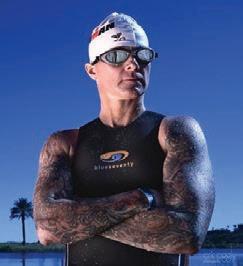
MAINTAINING BALANCE
Racing for Recovery is not about growing a generation of triathletes, but focuses more broadly on achieving and maintaining a balanced lifestyle that embraces family, friends and faith as much as fitness
“It’s not about not using,” Crandell explains. “It’s about being happy you’re not using and living life to the fullest.”
Theorganization expanded its focus as Crandell experienced more demands on his time. Once he started getting invited to speaking engagements because of the popularity of the organization’s recovery meetings, he realized he needed a stronger foundation of knowledge about addiction. Crandell received a master’s in counseling a decade ago and is now a licensed professional clinical counselor and licensed independent chemical dependency counselor in Ohio.
Racing for Recovery touches many lives with a modest presence of just six full-time staff.It conducts around 10 assessments per week, sees 20 patients in individual counseling sessions, and has a capacity of 50 in its IOP. With its emphasis on wellness, “We want to show there is a diffeent way to attain and sustain sobriety,” Crandell says.
RECOVERY 64 FALL 2017 ADDICTION PROFESSIONAL WWW.ADDICTIONPRO.COM
Gary A. Enos is Editor of Addiction Professional.
[Podcast] Recovery Unscripted: Becoming a Love Warrior with Glennon Doyle
Betty Ford was one of the first women on the scene in the world of addiction treatment, but two years before Ford came out on her alcoholism, she came out about her breast cancer. Lee Pepper – chief marketing officer at Foundations Recovery Network (FRN) – notes that, at the time, breast cancer was labeled by the media as “female cancer.”
Glennon Doyle, author of the #1 New York Times bestselling memoir Love Warrior, holds a conversation with Pepper on the barriers of masculinity and femininity and how to break down those walls to be, as Doyle puts it, “fully human” in a way that also encourages sobriety and recovery. “Women can be angry, fierce, and strong. Men can be tender and vulnerable.” Applying this to people of all ages, Doyle notes that the social stigma of expressing emotions that aren’t seen as specific to sex can cause people to hide their true selves and find other ways to act out, including diving into a world of substance abuse.
“We have to share from our scars, not our open wounds.” Doyle notes that, while it is difficult to be open when those in need of recovery are so vulnerable, it is important to carefully choose when and with whom these secrets are shared. Share about this illness
too early, and it may not have the right impact as when someone in recovery has had time to assess and come closer to terms with addiction, which can lead to a more balanced response instead of a reactionary one that may come with the initial sting that can keep those wounds open.
Doyle also mentions on “Recovery Unscripted” that sobriety has become a religion to her. “It’s a path that leads me deeper to the truth of things,” Doyle muses. “It’s not just ‘not drinking.’” She talks on settling with the pain and potential brutality in life instead of attempting to numb it and how sobriety leads to a feeling of integrity and self-acceptance as well as balancing the inner-self with the outer-self. “You can be strong enough to only allow into your life that which brings you peace.”
Download the podcast “Recovery
Unscripted: Becoming a Love Warrior with Glennon Doyle” and learn how to encourage everyone to discover their true selves: addictionpro.com/FRN-Podcast-Doyle
Foundations Recovery Network is committed to research that improves treatment for all addicted individuals. FRN’s facilities excel at treating the complex needs of patients with co-occurring conditions and encouraging actions that improve overall health, including medication compliance.
If you would like to speak with an admissions coordinator today or if you would like to learn more about our research methods and programs, please visit us online at http://www.foundationsrecoverynetwork.com or call us directly at 877-714-1318. Listen to more “Recovery Unscripted” at http://www.recoveryunscripted.org
SPONSORED CONTENT

ALKERMES and VIVITROL are registered trademarks of Alkermes, Inc. ©2016 Alkermes, Inc. All rights reserved. VIV-002649 Printed in the U.S.A. vivitrol.com START WITH VIVITROL FOR YOUR PATIENTS Discover VIVITROL at VIVITROL.com























 Les Lucas, LMFT Kingsview Rural Triage Program Fresno, Calif.
Les Lucas, LMFT Kingsview Rural Triage Program Fresno, Calif.




 BY GARY A. ENOS
BY GARY A. ENOS









 Tom Valentino is Senior Editor of Addiction Professional.
Tom Valentino is Senior Editor of Addiction Professional.

















































































































































































 Gary A. Enos is Editor of Addiction Professional.
Gary A. Enos is Editor of Addiction Professional.


